Sept. 13 to 19, 2024 10 Elul, 5784 • Ki Seitzei Vol. 23, No. 31
Reach the Star: Editor@TheJewishStar.com 516-622-7461 x291


Sept. 13 to 19, 2024 10 Elul, 5784 • Ki Seitzei Vol. 23, No. 31
Reach the Star: Editor@TheJewishStar.com 516-622-7461 x291

Former President Donald Trump and VicePresident Kamala Harris were given a chance to speak about Israel during Tuesday night’s presidential debate, but the ABC moderators failed to ask about rising antisemitism in America and the wave of pro-Hamas campus activism that’s been reignited as the new school year got underway.
In reiterating her support of Israel’s right to defend itself, Harris voiced sorrow that “far too many innocent Palestinians have been killed,” and said “we must chart a course for a two state solution.”
Trump said Harris “hates Israel” and that if she’s elected “Israel will not exist within two years from now … because the whole place is going to get blown up — Arabs, Jewish people, Israel. Israel will be gone.”
Harris responded that “I have my entire career and life supported Israel and the Israeli people.”
Trump began his comments about Israel by talking about Ukraine, saying President Putin would not have invaded had Trump been president. Trump declined to say whether he wants Ukraine to win.
• •
•
The debate segment on Israel, which began nearly an hour in, opened with a moderator reminding Harris that in pledging to support Israel’s right to defend itself…
ABC: “you added, ‘It matters how,’ saying international humanitarian law must be respected, Israel must do more to protect innocent civilians. You said that nine months ago. Now, an estimated


40,000 Palestinians are dead. Nearly 100 hostages remain. Just last week, Prime Minister Benjamin Netanyahu said there’s not a deal in the making. President Biden has not been able to break through the stalemate. How would you do it?”
Harris: Well, let’s understand how we got here. On Oct. 7, Hamas, a terrorist organization, slaughtered 1,200 Israelis, many of them young people who were simply attending a concert; women were horribly raped, and so absolutely I said then and I say now, Israel has a right to defend itself — we would.
And how it does so matters, because it is also true, far too many innocent Palestinians
have been killed — children, mothers. What we know is that this war must end. It must end immediately. And the way it will end is we need a ceasefire deal, and we need the hostages out. And so we will continue to work around the clock on that; work around the clock also understanding that we must chart a course for a two state solution, and in that solution, there must be security for the Israeli people and Israel, and an equal measure for the Palestinians. But the one thing I will assure you always, I will always give Israel the ability to defend itself — in particular, as it relates to Iran, and any threat that Iran and its proxies pose to Israel.
But we must have a two-state solution, where we can rebuild Gaza, where the Palestinians have security, self-determination and the dignity they so rightly deserve.
ABC: President Trump, how would you negotiate with Netanyahu and also Hamas in order to get the hostages out and prevent the killing of more innocent civilians in Gaza?
Trump: If I were president, it would have never started. If I were president, Russia would have never, ever — I know Putin very well — he would have never, and there was no threat of it either, by the way, for four years, have gone into Ukraine and killed millions of people when you add it up — far worse than people understand what’s going on over there.
But when she mentions about Israel, all of a sudden, she hates Israel. She wouldn’t even meet with Netanyahu when he went to Congress to make a very important speech. She refused to be there because she was at a sorority party of hers. She wanted to go to the sorority party. She hates Israel. If she’s president, I believe that Israel will not exist within two years from now, and I’ve been pretty good at predictions, and I hope I’m wrong about that one. She hates Israel. At the same time, in her own way, she hates the Arab population, because the whole place is going to get blown up — Arabs, Jewish people, Israel. Israel will be gone. It would have never happened. Iran was
By David Isaac, JNS
Revelations by Israel’s government about the United Nations Relief and Works Agency have shattered the group’s carefully cultivated image as a humanitarian organization, revealing it to be no less than an arm of Hamas in Gaza. However, little light has been thrown on UNRWA’s identical role in Judea and Samaria.
A new film, “UNRWA at War,” focuses on the educational side of UNRWA’s activities, in which children are taught not just to hate, but to kill. Just as it did in Gaza, UNRWA is inculcating children with the same genocidal creed in Judea and Samaria, only in this case for Fatah, the control-
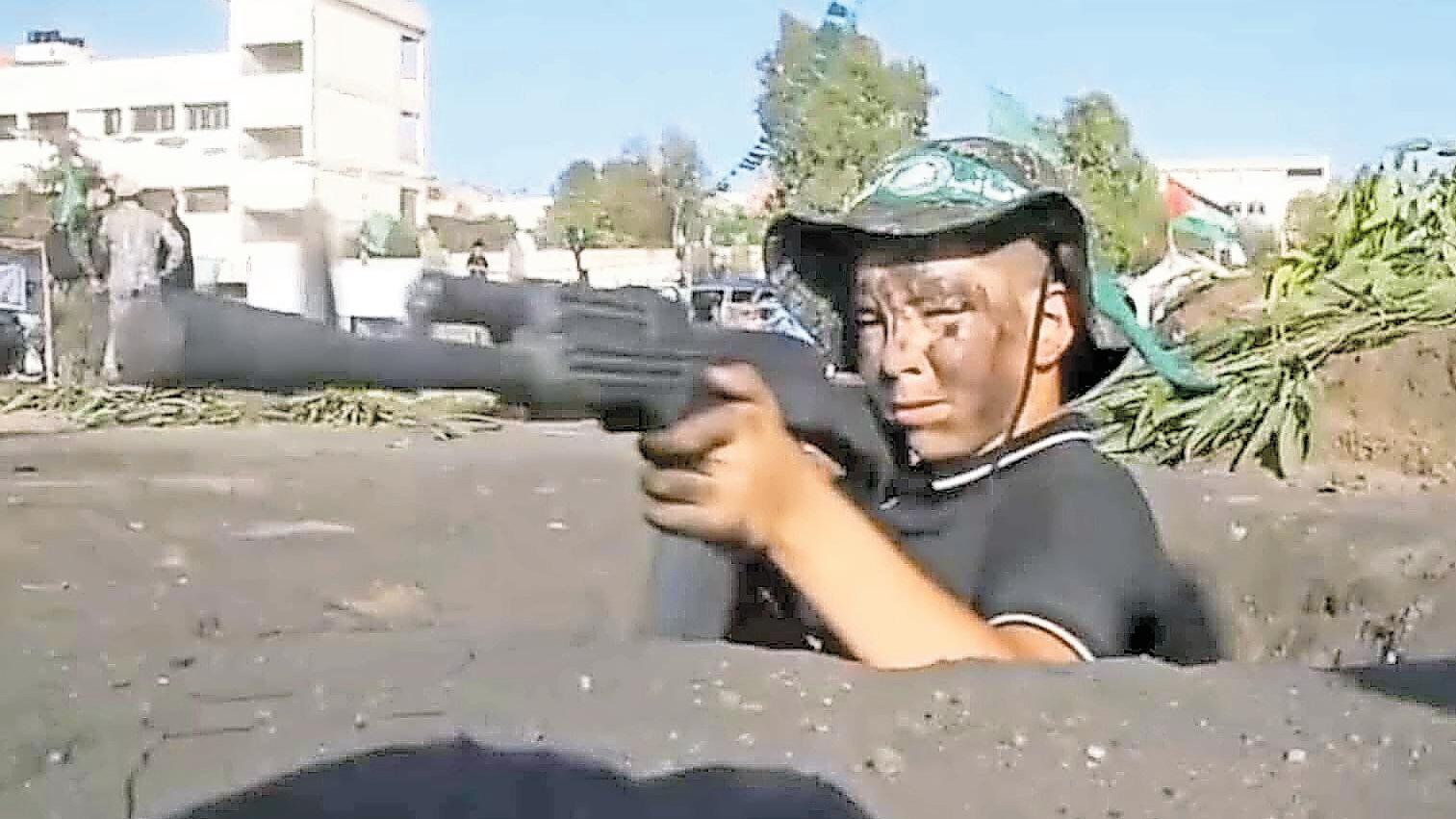
ling party in the Palestinian Authority.
The roughly 20-minute film was released by the Jerusalem-based Center for Near East Policy Research on Sept. 1 and is available online. The center’s director, David Bedein, told JNS that the movie shows what’s happening in Bethlehem. “That’s the next place they [the terrorists] are going to break out,” he said.
When could such an attack take place? “It could be as soon as tomorrow,” he said.
The film shows that terrorists, such as Dalal Mughrabi, a Fatah member who participated in the 1978 Coastal Road massacre in Israel, in which 38 Israeli civilians, including 13 children,
were murdered, are routinely held up as heroes and role models in UNRWA schools. Images of Mughrabi and other terrorists adorn the schools’ walls.
In the film, Arab students in Judea and Samaria, products of UNRWA schools, speak of Mughrabi with reverence.
“She’s like my sister, like my mother. She’s part of our people,” says a boy from the Al-Amari refugee camp east of Ramallah. A girl of about six, also from Al-Amari, says, “Dhalal Mughrabi is a Palestinian martyr. She fought against the Jews. She blew them up.” Bedein, who has been sounding the alarm regarding UNRWA for decades,
Analysis by Efraim Inbar Jerusalem Institute for Strategy
Europe borders the Middle East, and the continent cannot insulate itself from events in this region. Its options, however, are limited: Europe is hardly a strategic actor with the political will and requisite capabilities to intervene. Moreover, the Middle East is not easily amenable to foreign intervention. Nevertheless, Europe cannot ignore developments that impact its national security, and if it concentrates its efforts it may have a modest input in ensuring that pro-stability forces gain the upper hand.
The Gaza war reflects two important features of Middle Eastern politics, as well as the ongoing competition in the global system. In large parts of the Middle East, we see failures in grappling with the challenge of state building. The Hamas Islamist militia took over Gaza in a bloody coup in 2007, as the Palestinian Authority failed to maintain a monopoly over the use of force in the territory under its control. Similarly, militias are vying for control in Iraq (in the wake of the American departure), in Syria, Yemen, Sudan and Libya. Hezbollah, a Shi’ite militia, has taken over Lebanon, despite the parallel existence of a national government and army.
The Gaza war is also a manifestation of Iranian ambitions for hegemony in a region once part of the Persian empire. Iran’s Islamic Revolution has sought to wage perpetual and unbridled holy war against Western civilization and to takeover Sunni Arab lands; it also targets Israel in this jihad. Many of the region’s militias have been trained, equipped and supported by a religiously motivated Iran.
The Gaza war also mirrors the main struggle in the international system against American predominance, that is being conducted primarily by the quartet of China, Russia, Iran and North Korea. The war in Ukraine has strengthened this alliance. For years, Iran has conducted a multi-front war against Israel, an American ally, and the only state that has the power to oppose its aspirations in its campaign to drive the United States out of region. The quartet shares this aim.
In the absence of the capability to defeat Israel on the battlefield, Hamas implements the Iranian-inspired strategy that targets its civilian population, hoping this will leave it under duress. The premeditated atrocities perpetrated and filmed on Oct. 7, 2023, were intended to terrorize Israeli citizens, in the same way as the missile attacks that rained down on Israeli civilians. Israel had no choice but to counterattack.
Europeans initially expressed support for Israel’s right to defend itself, but much of their be-

havior (including their voting record at the United Nations) undermined Israel’s quest to destroy completely the military capability of Hamas and the efforts to increase pressure on the organization to secure the release of the Israeli hostages. Moreover, several European states recognized the non-existent state of Palestine, thus rewarding the dysfunctional Palestinian national movement and Hamas’s terrorist activities.
How can Europe play a more positive role in making the Middle East more peaceful? What can the Europeans do to curb the current inclinations in the region toward despotic regimes, terrorism, religious fanaticism and nuclear proliferation?
The developments in the Middle East have underscored an old truism. Outsiders have very little influence over Middle East outcomes; these are determined primarily by domestic forces and ingrained local political culture. Despite heroic efforts and vast financial investment, the United States has failed to create an Iraq in its image. Afghanistan was even more resistant to Western reform efforts. This should not be a surprise, as British and French colonial rule over several decades also did not change the way the “natives” conducted business.
Western attempts to intervene during the “Arab Spring” in Libya and Egypt ended in a similar fail-
Continued from page 1
broke under Donald Trump. Now Iran has $300 billion because they took off all the sanctions that I had. Iran had no money for Hamas or Hezbollah or any of the 28 different spheres of terror — and they are spheres of terror, horrible terror. They had no money. It was a big story, and you know it, you covered it very well actually. They had no money for terror. They were broke. Now they’re a rich nation, and now what they’re doing is they’re spreading that money around.
Look at what’s happening with the Houthis and Yemen. Look at what’s going on in the Middle East. This would have never happened. I will get that settled and fast, and I’ll get the war with Ukraine and Russia ended. If I’m president-elect, I’ll get it done before even becoming president.
ABC: Vice President Harris, he says you hate Israel.
Harris: That’s absolutely not true. I have my entire career and life supported Israel and the Israeli people. He knows that. He’s trying to again, divide and distract from the reality, which is it is very well known that Donald Trump is weak and wrong on national security and foreign policy. It is well known that he admires dictators, wants to be a dictator on day one, according to himself. It is well known that he said of Putin that he can do whatever the hell he wants and go into Ukraine. It is well known that he said when Rus-
sia went into Ukraine, it was brilliant. It is well known he exchanged love letters with Kim Jong Un, and it is absolutely well known that these dictators and autocrats are rooting for you to be president again because they’re so clear they can manipulate you with flattery and favors.
And that is why so many military leaders who you have worked with have told me you are a disgrace. That is why we understand that we have to have a president who is not consistently weak and wrong on national security, including the importance of upholding and respecting in highest regard our military.
Trump responds: She’s the one … that’s weak on national security by allowing every nation — last month, for the year, 168 different countries sending people into our country. Their crime rates are way down. Putin endorsed her last week, said, I hope she wins, and I think he meant it, because what he’s gotten away with is absolutely incredible. It wouldn’t have happened with me.
The leaders of other countries think that they’re weak and incompetent, and they are. They’re grossly incompetent. And I just ask one question, why does Biden go in and kill the Keystone Pipeline and approve the single biggest deal that Russia’s ever made — Nord Stream 2, the biggest pipeline anywhere in the world, going to Germany and all over Europe? Because they’re weak and they’re ineffective, and Biden, by the way, has paid a lot of money.
ure. The ambitious project conducted by the European Union to create a “civil society” in the Palestinian territories has only enriched academics and cunning civilian entrepreneurs with little influence over Palestinian political culture. An interventionist European foreign policy to move societies into a democratic track is unlikely to produce positive results. Europeans tend to forget that it took European states centuries to adopt a democratic system. Nevertheless, Europe or the European Union can do more to support pro-stability forces in the Middle East and weaken sources of instability. First, it should adopt a realpolitik lens and throw away its rose-tinted view of human nature. This is how Middle Easterners view the world. They often muse over European naiveté, which is occasionally despised. Similarly, the discourse about creating trust is simply nonsense in the region’s political parlance. Trust is not a currency used in Middle East politics. The employment of force and fear are more useful.
Some of the actors in the Middle East are evil, and engaging them diplomatically is rarely productive in limiting their mischief. Similarly, applying economic sanctions often has only meagre results. Iran has been subject to such sanctions for over two decades without any change in its behavior. Europeans must overcome their reluctance to see military force as a useful tool in punishing and deterring destabilizing actors. Calling for restraint and fearing escalation when a bad guy is being beaten is counterproductive.
This means accepting Israel’s objective of destroying Hamas military capabilities in order to give its citizens a respite from missile attacks. Moreover, trying to save an Islamist mini-state that serves Iranian interests on the shores of the East Mediterranean is strategic folly; over-sensitivity to the human cost in eliminating it makes little strategic sense. Its location near the Suez Canal, an important choke point and sea route, as well as to offshore gas deposits, lends importance to who rules this area. The Europeans should appreciate efforts to minimize the presence on the shores of the Eastern Mediterranean of Islamic radicals whose influence has already spread to Turkey, Syria, Lebanon Libya and the Sinai Peninsula.
A new European attitude toward the use of force also means an understanding of Israel’s need to launch a war against Hezbollah to allow its displaced citizens to return home to a normal life. A military blow to Hezbollah may also provide an opportunity for Lebanon to free itself of Islamist influence and become the tolerant and prosperous state it once was. Moreover, it signals to Iran and its proxies that their actions carry costly consequences. Exacting pain for misbehavior is the ABC of international relations.
The timidity of the United States and its European allies in dealing with the Houthis, an Iranian proxy blocking the Bab el Mandeb Strait, an international waterway, is intriguing. Forcing naval traffic to go to Europe around Africa, instead of the Suez Canal, carries financial costs
and inflicts significant damage to the economy of Egypt, a pivotal pro-Western state in the Middle East. Tolerating this situation only encourages Iran to become more aggressive in its actions in the region and less fearful of Western retaliation. Indeed, nowadays Iran is the main source of trouble in the Middle East.
If Europe is serious about minimizing the dangers emanating from the Middle East, it must adopt a more confrontational posture toward the mullahs in Teheran. This has become more urgent as Iran progresses quickly toward the bomb. Europe must support all actions, including the military option, to prevent Iran from becoming a nuclear power whose missiles can reach the old continent as well. Everything should be done to halt a nuclear arms race in the Middle East. A nuclear multipolar Middle East would become a strategic nightmare for everybody in the region and its vicinity. An Iranian nuclear umbrella for Tehran’s proxies would further embolden them. The United States, which is geographically remote from Iran and thus has a lower threat perception, needs a more energetic Europe particularly on this matter. Europe must realize that constraining the activities of radical Islamists does not amount to Islamophobia. For example, the absurd distinction between the political and the military arms of Hamas is still accepted by some European governments. The radical anti-Western ideology of Hamas is inextricably intertwined with its violent modus operandi. Europe should outlaw Hamas in all its forms, forbid its fundraising activities and pursue all its supporters on the continent. This of course also holds true for Hezbollah. This should not be construed as a pro-Israeli policy, but as a policy that strengthens moderate Arab states, such as Egypt, Saudi Arabia, the UAE, Bahrain and Jordan. They all abhor the Muslim Brotherhood (MB) in Egypt and its offshoots such as Hamas in Palestine, as well as Turkish president Recep Tayyip Erdogan and a large part of his Justice and Development (AK) Party. They are all concerned about the freedom enjoyed by the followers of this movement in Europe. The MB is a larger danger for the Arab states than for Israel. Europe should be critical of Qatar, which plays a unique role in destabilizing the Middle East by funding the MB, while its Al Jazeera media network is the MB’s mouthpiece in instigating against Arab regimes. Turkey, which hosts Hamas on its soil and spreads the MB message in Europe and elsewhere deserves similar critical treatment.
Europe should announce its full support for Israel with all its means if the Jewish state is attacked by a terrorist organization. Such a statement amounts to strategic and moral clarity. Europe’s human rights nitpicking for violations during warfare in Gaza are a result of ignorance of what a modern battlefield looks like and the unprecedented efforts by the Israel Defense Forces to limit the loss of civilian lives.
Europe should also overcome its obsession with the two-state solution. As noted, the Palestinians have failed miserably to meet the Weberian test of statehood — monopoly over the use of force. They established weak, corrupt and fragmented polities. The Palestinian political trajectory leads toward a civil war waged by a variety of militias, similar to other Arab states, or to a Hamas-dominated entity. Moreover, all polls show that the Palestinians are still far from relinquishing their revisionist dreams and becoming peaceful neighbours of the Jewish state.
The Palestinians’ real problem is not where the border between the Palestinian state and the State of Israel lies, but the very fact that there is such a border, because so many believe that there is no legitimacy for a Jewish nation-state in the Middle East. Pushing for Palestinian statehood at this stage will only increase the chances of a deadly Israeli-Palestinian war in which both sides will suffer, but in which the Palestinian pain will certainly be greater. The status quo — not ideal — is probably the less destructive alternative.
A peaceful Middle East is not on the cards anytime soon. Limiting the power of the bad guys is a realistic objective, however. In addition to a more astute American foreign policy, a coherent and realistic EU strategy toward the Middle East could contribute toward attaining such a goal.


• Obstetrics & Gynecology
• Maternal-Fetal Medicine
• Gynecology-Oncology
• Breast Surgery
• Urogynecology
• 3-D Digital Mammography
• Diagnostic Ultrasounds
• Breast Biopsy Procedures
• Bone Density Testing
• Nutrition Services

describes the indoctrination the kids are receiving as “murder education.” UNRWA, he said, is a “machine” that produces genocidal children in a “cookie-cutter” manner.
Kutaiba Hatab, 15, attends the UNRWA Boys School in the Jalazone refugee camp north of Ramallah in Samaria. Asked in the film what he’s taught about the right of return, he says, “To fight, and to keep fighting, until Palestine is liberated!”
He goes on to state that when he grows up, “I’ll be a jihadist and fight for Allah!”
“Do you hate Jews,” an interviewer asks Rada Abu-Hatab, 12, an UNRWA student in Jenin. “Yes, a lot,” she answers. “I want to fight and become a martyr and ascend to heaven with Allah!”
Mohammed Mahmud Khalil, an UNRWA student from Ein Arik, an Arab town near Ramallah, says, “What is the solution to Jerusalem? To kill the Jews. We’ll get rid of the Jews. … With Allah’s help, I will become a holy warrior.”
All the children connected the Hamas invasion of Oct. 7 to the right of return, characterizing the gruesome attack as an effort to liberate the land from the Jews.
“Oct. 7 is related to the right of return because Hamas reconquered part of our land that was taken by the occupiers,” says Osama Belashe, an UNRWA student from Jalazone. “In school our teacher taught us we have to return. Even if Israel gives us compensation [to stay here] we have to return.”
For Bedein, the most important thing the film documents is that at UNRWA, children receive military training. In previous films, Bedein has shown that these training camps were set up near Israel Defense Forces bases.
He worries that Israel has been slow to adapt to the post-Oct. 7 reality. “They’re making the same mistake they made last October, not paying attention to the preparations for war in the UNRWA camps,” he said.
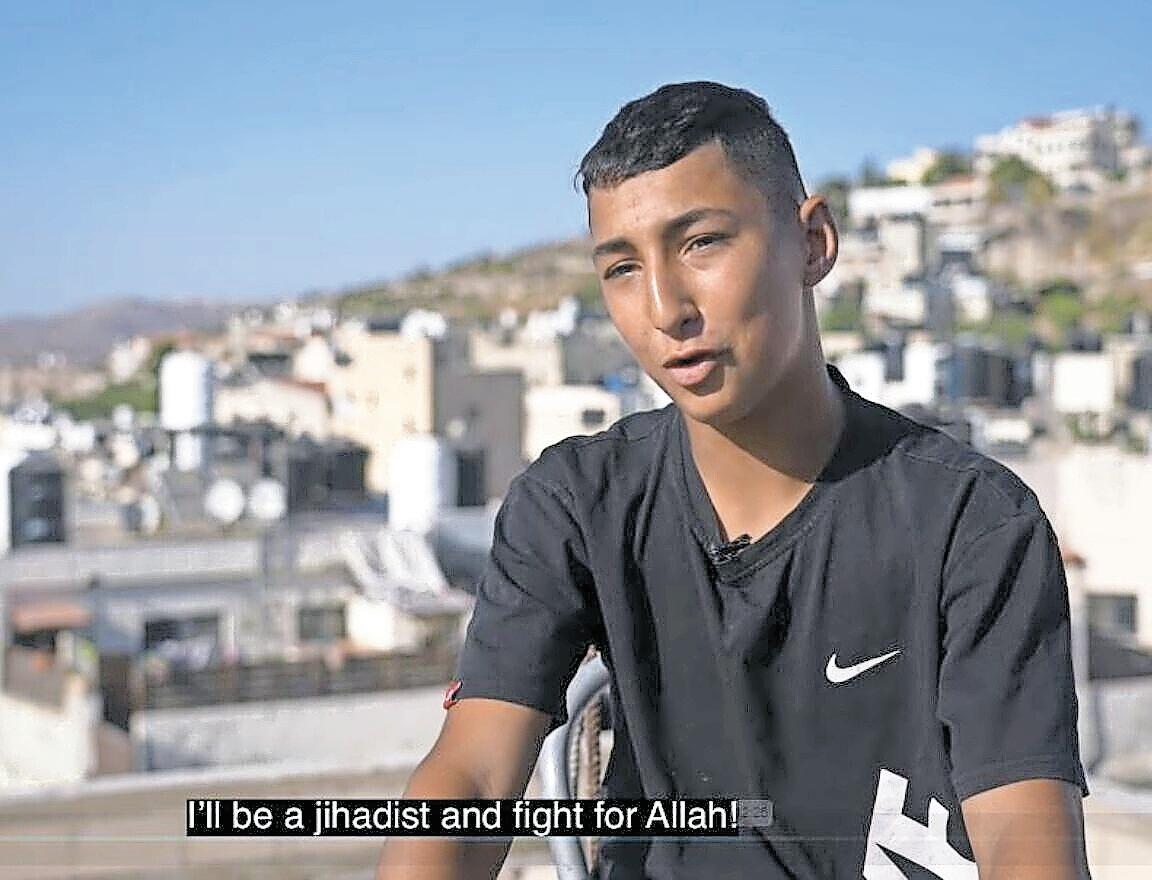
However, he sees signs of awakening, noting a recent Israel Army Radio report that the military intended to investigate military training at UNRWA camps.
And next week, Bedein is to present his findings to a Knesset committee. “People who did not take me seriously over a period of 36 years are now taking me seriously,” he said.
Incompetence, or willful blindness, on the part of the Israeli authorities is a recurring theme for Bedein.
He said the Foreign Ministry has a special

division dedicated to overseeing UNRWA, yet its representatives were oblivious regarding the weapons held at UNRWA camps. He brought them to the Askar camp bordering Nablus (Shechem) to show them. “They had no idea about the guns,” he said.
Moreover, Israel never exercised what oversight it had, he said. “Israel has the power to veto anything in Palestinian education. What we learned from Oct. 7 is that they weren’t doing it,” he added.
“Back in the 1980s, I began this conversation
with how humanitarian supplies were sold in the open market and with no supervision,” Bedein said. “And they [Israel] didn’t make any changes. There was no oversight. To say they’re not doing their job is an understatement,” he added.
Although many have argued for doing away with UNRWA, according to Bedein that’s not a realistic solution. The organization is too embedded in the territories and in the United Nations, and the General Assembly would never accept it, he argued. However, he continued, it is possible to change UNRWA from within by pointing out the absurd situation and demanding change.
“The theme of UNRWA education is ‘peace starts here,’” he said. “How could it possibly be that a U.N. social work agency would be using their education system to prepare kids for war?”
Bedein put together a five-point plan for changing UNRWA from within:
1. Cancellation of the new UNRWA curriculum based on jihad.
2. Disarmament of UNRWA schools and cessation of paramilitary training.
3. Dismissing UNRWA employees affiliated with Hamas, Islamic Jihad and Fatah.
4. Resettling fourth- and fifth-generation refugees from the 1948 war rather than keeping them in perpetual refugee status.
5. Demanding an audit of donor funds. He has met five times with Antonio Guterres, the UN secretary general, whom he said is open to his proposals.
While UNRWA was always corrupt, he said, it wasn’t always the way it is now, he said.
Even the children going through the schools, while they spoke of “their homes in Jaffa,” didn’t talk about going back and killing everyone in Jaffa as they do now, he said.
“The change took place after 1992 when the PLO was put in charge by [then-Foreign Minister] Shimon Peres,” he said. “UNRWA was handed over to the PLO.”

By David Swindle, JNS
Pretending to recruit for a pro-Hamas fraternity on a college campus taught two Jewish comedians how much the students — America’s future leaders — can be sheep.
Zach Sage Fox and Yechiel Jacobs posed as recruiters for a fictitious pro-Hamas fraternity and sought members.
In a 90-second video titled “Rush Hamas” that they posted on social media, the two comedians don red visors, sunglasses and red tank tops that approximate the word “Hamas” in Greek Letters — eta, delta, mu, delta, sigma.
“It’s back to school season, and you know what that means,” they say. “Antisemitism.”
“We’re starting a new fraternity,” they say, gesturing to the text on their shirts. “Hamas.”
They ask one group, “Are you guys anti-Israel?” Several students say that they are. “We’re putting together a Hamas fraternity,” the two say. “This is a Hamas represent come together.”
Some students identify themselves as freshmen at New York University. The undercover comedians are told another student goes to Columbia University. “Dude, Columbia is like one of the biggest like Jew-hating schools out there,” the duo says.
“You down?” they ask a girl wearing headphones. “Yeah,” she says, as she appears to sign.
“Just a quick sig,” they tell others, using shorthand for “signature.”
“Throw me your sig right here,” they tell another.
“Don’t you need, like, our emails or something?” one student asks. “Yeah. Yeah. Emails and signatures,” the duo says.
The terms and conditions of the new “fraternity,” the duo says, include “taking a road trip to Jewish-owned businesses to protest.”
“We’re literally going to be, like, chanting outside of synagogues, like harassing Jews,” they tell another student. “Keffiyeh fashion show,” they say to another student. “It’s a lot of fun.”
They also appear to tell students, “Death to America.”
“We’re doing this anti-Zionist keg stand,” they tell a student in a head covering. They tell others, “Obviously chant to obliterate Israel.” To another, they say “boycotting Jewish businesses, protesting synagogues, all the good stuff.”
“What do you think, kick out all of those Jews?” they tell some

“All the proceeds, like, go to funding terrorism,” they say. “Awesome.”
They also talk of a “Hamas-themed formal,” where everyone wears green and keffiyehs.
“Antisemitism on college campuses is rampant,” the video concludes. “We can’t end it until we expose it.”
Fox told JNS that the duo hid a camera in a tree in Washington Square Park in lower Manhattan and stuck to a corner of the park. It took only 30 minutes to talk to dozens of people, about half of whom agreed to sign up for the fraternity, Fox said.
He sees the experience, in which the duo spoke to students from NYU, Columbia and Pace University, as a “social experiment,” he said.
“I’ve been making videos uncovering Jew-hate for months now, but with the rise in antisemitism particularly on college campuses last spring, I was curious to see if it simmered or spiked going into the fall semester,” he said. He added that a hidden camera was a good way to see if “antisemitism could be accepted in a casual way.”
“It was pretty shocking to see how many students were willing to sign up for a Hamas fraternity, especially when we kept giving them the terms and conditions of what we would be doing as a Greek organization: harassing Jewish businesses and synagogues,” Fox told JNS.
“It’s one thing to not know much about Israel or Jewish people,” he said. “We’re a tiny people and country. But these are some of the most privileged kids in the world to attend NYU and Columbia university, and that privilege is largely from being American.”
Fox said that “just to hear the casual acceptance of hearing ‘death to America’ and not standing up to say anything was pretty insane.”
The comedian told JNS that his fellow funnyman, Jacobs, “is an extremely talented and brave guy who absolutely crushed this experiment with me.”




“Ultimately, the social experiment showed how easy it is to convince college students to hate Jews and Israel, especially when there is a group or social element involved,” Fox said. “College students are looking for community when they arrive, and I think our viral video showed just how much young people are willing to tolerate if they think they will be able to make friends and discover a sense of belonging.”
That “is how I believe so many have been willing to take part in these vile encampments and Jewish-hating clubs on campus,” he added.






























By Hanan Greenwood, Israel Hayom
“There’s no denying the uptick in antisemitism,” stated Edna Weinstock-Gabay, CEO of Keren Hayesod. Since the onset of the Gaza war, Jews in the United States and Canada have witnessed a surge in antisemitic incidents, particularly on college campuses.
An Orthodox Jew in New York described his new reality: “Before I step out of my apartment, I have to weigh whether to wear a kippah or a hat, whether to display my hostage pin or conceal it under my shirt.”
Although Jews in Canada “still enjoy a good quality of life, we can’t ignore the extreme incidents that have erupted since Oct. 7,” said Sarah Mali, CEO of the Jewish Federations of CanadaUIA. “There’s a palpable increase in feelings of insecurity. I know of individuals who now lower their blinds when lighting Shabbat candles.”
Shira Ruderman, CEO of the Ruderman Family Foundation, brings a personal perspective to campus turmoil. With her daughter studying at Columbia University and her son at Northeastern University in Boston, it’s become a personal concern.
“It feels like the entire ideological and value system we believed in is crumbling,” she reflected. “We thought we had it all figured out, that being Jewish in America was a non-issue. We saw ourselves as global citizens, fully integrated. Then suddenly, it’s as if someone held up a mirror, forcing us to confront a harsh reality.”
“In some areas, there’s genuine fear,” she continued, with students forming “protection squads” to accompany each other.
Yet, in the face of these challenges — or perhaps because of them — Jewish communities across North America are demonstrating remarkable resilience. Becky Caspi, CEO of the Jewish Federations of North America in Israel, reports a surge in interest from previously unaffiliated Jews seeking to connect with their communities.
“Since Oct. 7, we’ve seen a strong desire

among Jews to belong, to actively participate in Jewish life,” she said. “We’re witnessing a groundswell of interest in Jewish communal life.”
There are approximately 500 Jewish communities spread across the United States and Canada. Of these, 146 are organized as federations (the majority in the United States), while the remainder are smaller communities without extensive professional infrastructure.
“Our challenge now is finding meaningful ways to welcome and integrate these individuals into our communities,” Caspi noted. “Our data shows that about a third of Jews are eager to deepen their understanding of Israel and Jewish life. Approximately a quarter express interest in becoming more involved in their local Jewish community activities.”
A young Jewish resident of Texas encapsulates this shift: “As a secular Jew, I’ve found myself more inclined to observe holidays and openly discuss my Jewish identity since Oct. 7.”
While acknowledging the gravity of rising antisemitism, Caspi advocates for a measured perspective.
“This antisemitism demands our attention and a well-crafted response. But let’s be clear — this is not pre-Holocaust Germany,” she said. “Our government institutions, law enforcement and judicial systems stand firmly in support of the Jewish community. We are not alone in this fight.”
Amid current challenges, North American Jewry has demonstrated an unprecedented level of support for Israel since Oct. 7. This mobilization has taken various forms: financial contributions, volunteer efforts and public displays of solidarity.
A prime example was the massive march in Washington last November, which drew as estimated 300,000 participants.
“Toronto witnessed a similar outpouring of support, with tens of thousands of Jews marching in solidarity,” Mali recounted. “In other cities, smaller groups have taken to the streets, proudly waving Israeli flags. I was particularly moved by a seven-year-old boy from Victoria Island who lives with disabilities. He wrote me a letter, asking that his modest contribution be used to buy shoes for evacuees. These gestures speak volumes about our community’s spirit.”
The financial support from Jewish communities has been nothing short of extraordinary. This includes substantial donations from wealthy individuals as well as grassroots efforts collecting contributions dollar by dollar. To date, an impressive $852 million has been raised. “And we’re not done yet,” said Caspi.
“Jewish communities have contributed over a billion dollars to Israel,” Shira Ruderman stated emphatically. “This level of mobilization is unprecedented.” Becky Caspi added, “These staggering figures underscore North American Jewry’s unwavering commitment to Israel in times of crisis.”
Sarah Mali struck a note of cautious optimism: “While we’re navigating a complex situation, I remain hopeful. This past year has shown that the Canadian Jewish community can stand firm in the face of adversity. Yes, we face threats, but we’ve also strengthened our resolve. Our community now proudly proclaims: We are strong and proud Jews.”
Shira Ruderman offered a concluding perspective on the state of American Jewry: “The Jewish community in America is robust, with IsraeliAmericans playing a particularly vital role. There are approximately 850,000 Israelis living here, and they all share a common surname — Zionism. They wear their Israeliness and Judaism as badges of honor, without shame or compromise.”





















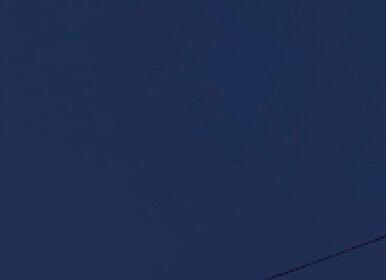



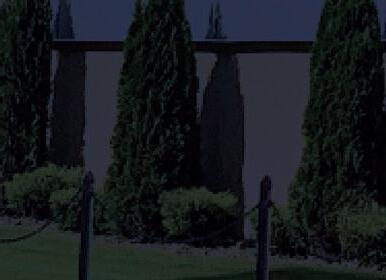












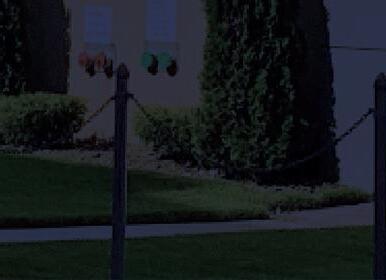

































By JNS
BBC violated its own editorial guidelines 1,553 times during the four-months beginning Oct. 7, repeatedly downplaying Hamas terrorism and presenting Israel as an aggressor, according to an analysis released over the weekend.
“The findings reveal a deeply worrying pattern of bias and multiple breaches by the BBC of its own editorial guidelines on impartiality, fairness and establishing the truth,” the report said, according to the Telegraph newspaper.
British lawyer Trevor Asserson, who runs Israel’s largest international law firm and has long campaigned against BBC bias, led the research which found that BBC journalists repeatedly downplayed Hamas terrorism while presenting Israel as militaristic and aggressive.
Some BCC journalists who covered the current Israel-Hamas war previously showed sympathy for Hamas and even celebrated its terrorism, the report said.
Jeremy Bowen, the BBC’s international editor, excused Hamas’ terrorist acts and Lyse Doucet, the BBC’s chief international correspondent, downplayed the Oct. 7 attacks on Israel, it said.
The report censured especially the public broadcaster’s BBC Arabic channel, calling it one of the most biased of all international media in its coverage of the Gaza war.
It noted 11 cases in which BBC Arabic featured reporters who have previously made public statements in support of terrorism and specifically Hamas, without letting viewers know.
Danny Cohen, a former BBC executive, said that there was an “institutional crisis” at the national broadcaster. He called for an independent inquiry into its Gaza war coverage.
Asserson was joined by a team of about 20 lawyers and 20 data scientists, with artificial intelligence used to analyze nine million words of BBC output. Last week, he launched an organization called Campaign for Media Standards, to expose bias across UK media.
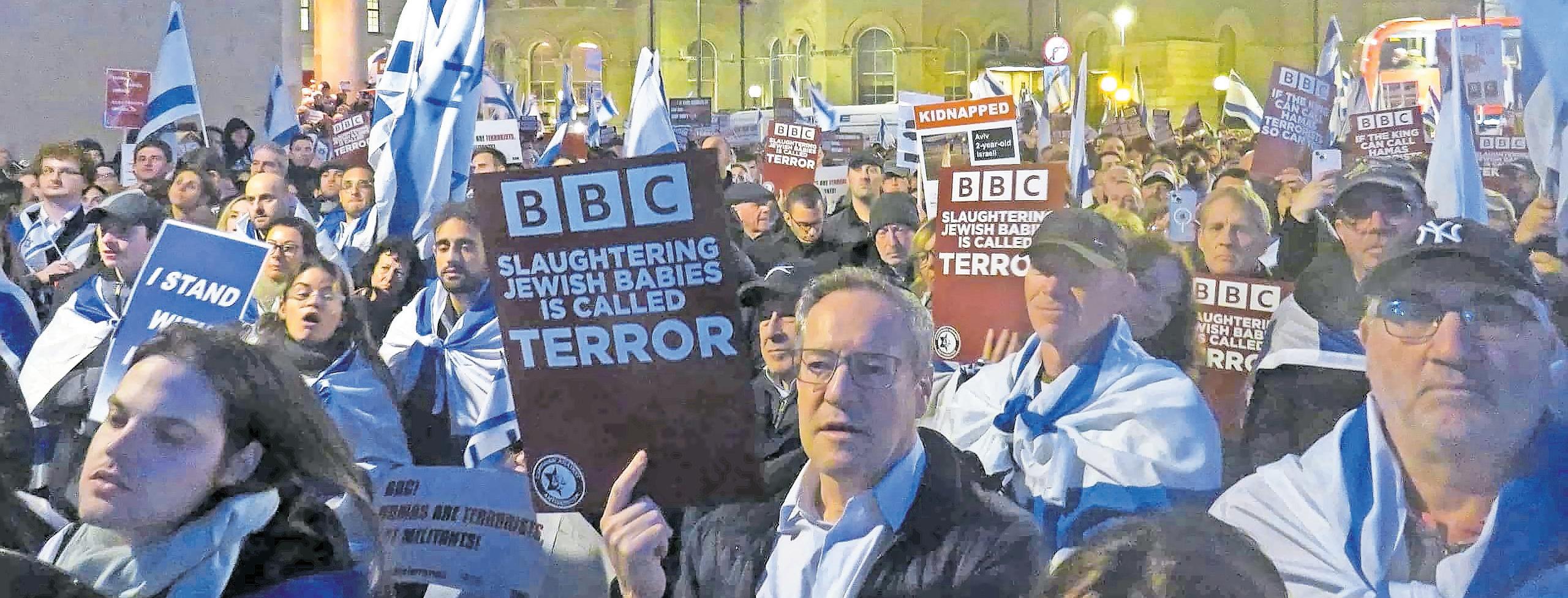
The Campaign Against Antisemitism and the National Jewish Assembly also called for an independent review, the Telegraph said.
Sir Oliver Dowden, shadow deputy prime minister, said, “The BBC is one of the premier news services in the world, and to hear that standards may be slipping in such a severe way like this, risks tarnishing the reputation of our news service.
“Serious questions should be asked as to why this has been allowed to happen, and license-fee payers should expect to see the BBC stick to its own editorial guidelines,” he said.
Following the Oct. 7 massacre, the BBC was condemned for failing to call Hamas members “terrorists.” In late Oct., the BBC said it would describe Hamas “where possible” as a “proscribed terrorist organization.”
However, the report found that Hamas was described as a “proscribed,” “designated” or “recognized” terrorist organization just 409
times (3.2%) out of 12,459 mentions over the four-month period.
Greg Smith, a Conservative Party member serving as both transport and business minister in the shadow government, said, “We knew in the aftermath of October 7 that the BBC was struggling to call a terrorist a terrorist.
“There are now clear grounds for Ofcom [the Office of Communications] and the Department for Culture, Media and Sport to use every tool they have in their arsenal to bring about greater compliance with the rules around neutrality and fair coverage in the BBC charter,” he said.
The BBC said it would “carefully consider” the report, which has been submitted to its director general, chairman and other board members, but a BBC spokesman already criticized the research, saying the corporation had “serious questions” about its methodology.
A BBC spokesman also denied allegations
against its staff: “We strongly reject the claims that our reporters ‘celebrated acts of terror’ and we strongly reject the attack on individual members of BBC staff, all of whom are working to the same editorial guidelines.”
Lord Ian Austin, a former Labour Party minister, accused the BBC of “high-handed arrogance” for its ongoing dismissal of criticisms regarding its impartiality.
Lord Stuart Polak, honorary president of the Conservative Friends of Israel, said, “There’s a clear pattern. Other broadcasters have also made errors, but the BBC keeps getting it wrong. It’s shameful, it’s wrong and what’s worse — the BBC knows it.”
Dudley said that after spending decades defending the BBC, he is now “convinced” that its coverage of the war “fails to meet the standards of impartiality and independence on which its public funding is based,” the Telegraph reported.
Note the ACCOLADES from our CLIENTS
RE: SYNAGOGUES and YESHIVOS
Dear Rabbi Leiner, Thank you for replacing the Insurance for our Synagogue, with a Savings of almost 50%.
B.F. Executive Director
RE: REAL ESTATE CORPORATION
Dear Rabbi Leiner, You and Your Experts, have saved our Corp. Very Substantial Sums, with your Quality Insurance Replacement on our Real Estate Buildings. Thank you, M.B. Pres.
RE: HOMEOWNERS INSURANCE
Dear Rabbi Leiner, Our Insurance Company Refused to renew our Insurance Homeowners Policy. However, You and Your Experts were able to Secure for us other Insurance Coverage, even at a much lower Premium, than the Prior Canceled Insurance Policy. Thank You So Much.

















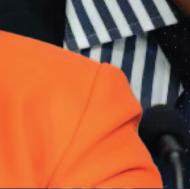







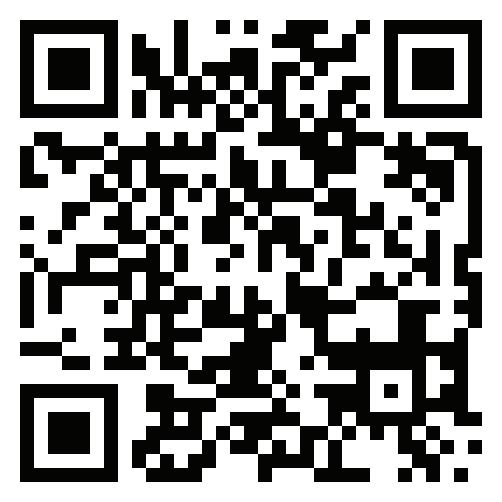

As Jews the world over celebrate Rosh Hashana on Wednesday evening, Oct. 2, sweet dishes will be served to welcome 5785 with wishes for a sweet year ahead. And for the release of the hostages. And for peace.
Shani Feinstein, who lives in the Philadelphia suburbs, has vivid memories of her last Rosh Hashana in Tehran in 1979. She had just graduated college and was settled in a job.
She recalls that “demonstrations against the Shah had started in June, but we didn’t pay much attention. Then, before Rosh Hashana, floods of angry people — men and women — spilled into the streets. They became more intimidating. The ayatollah made empty promises. Women had to cover Western clothing and wear a chador — a full, body-length black garment — or face punishment. It was the end of freedom under the Shah’s regime.”
The Jewish community — between 70,000 and 80,000 people in all and one of the oldest in the Diaspora — laid low so as not to draw attention to themselves or the holiday. Before going to shul, Sion, her father, would wrap his tallit bag in a newspaper. Shopping at the market for all the holiday foods, Shani’s mother, Tuba, wore a chador and stayed to herself. That year, Rosh Hashana was celebrated quietly with family.
The political atmosphere grew darker in the country. Most Jews lived in Tehran, with lesser concentrations in Shiraz, Kermanshah and Isfahan.
Shani recounts that “the Shah had left, and the ayatollah returned and replaced the government.” She told her mother that she didn’t want to live in such an environment. But where to go? Communication with Israel had been cut off. In February 1980, word spread that the Chabad-Lubavitch movement was ready to take young people out of Iran to New York. The fear was of another Holocaust. Shani went to the passport office every day for two months until she received her passport. “It was the happiest day of my life,” she says.

Eventually, the rest of her family came over, save for one sister. Shani went on to marry and have three children.
Shani carries on the Sephardic culinary traditions she grew up with, reminiscent of a home she can no longer see. There are no Western-style meal courses in Iran. No soups, no challah, no honey or apple cake, as in Ashkenazi holiday meals and tradition. Rather, a sumptuous array of Rosh Hashana dishes is set out on a long table, buffet-style. Symbolic foods consist of flatbreads, pomegranate seeds, pumpkin, red beans, leeks and dates — for a sweet year and for the eradication of enemies.
A simple salad reflects the Iranian use of just a few fresh ingredients. Alongside, a tray
of assorted fresh herbs like fresh tarragon, watercress, radishes and green onions is typically served to dinner guests.
Dessert comes in the form of baklava, accompanied by a platter of seasonal fruits and nuts.
Shana Tovah Umetukah: A good and sweet New Year to all!
Serves 4 to 6
Cook’s Tips: •May substitute any fresh herb such as mint, watercress or parsley for the cilantro. •Two to three limes, depending on size, yield 1/4 cup lime juice. •imes and lemons yield more juice at room temperature.
Ingredients:

• 3 to 4 Persian cucumbers cut into 1/2inch pieces
• 2 to 3 medium tomatoes, cut into wedges
• 1/4 Vidalia onion, finely chopped
• 3 Tbsp. chopped cilantro
Dressing:
• 1/4 cup freshly squeezed lime juice
• 3 Tbsp. extra-virgin olive oil
• Pinch of salt and 3 to 4 grinds freshly ground black pepper
Directions:
Place all ingredients into a serving bowl. Set aside.
In a small bowl, whisk together the dressing ingredients. Pour over the vegetables in a bowl. Serve chilled or at room temperature.
Makes 6 to 8 servings
Cook’s Tips: •Use store-bought shredded carrots. •Slivered orange peel by the company Sadaf is available online on Amazon. If preparing at home, make sure no white pith remains on the peel.
Ingredients:
• 1 cup slivered orange peel
• 4 cups water, divided
• 1 cup carrots, cut into thin strips
• 2 Tbsp. vegetable oil
• 1 cup sugar
• 1/2 tsp. saffron dissolved in 2 Tbsp. hot water
• 3 to 4 cups hot cooked rice
Directions:
In a medium saucepan, place orange peel and 3 cups water. Bring to a boil over high heat. Cook for 10 minutes. Drain. Rinse with cold water and set aside.
In a small skillet, sauté the carrots in oil over medium heat for 5 minutes. Set aside. In a separate saucepan, place the orange peel, carrots, sugar and 1 cup water. Bring to a boil over high heat.
See At a somber moment on page 14












































































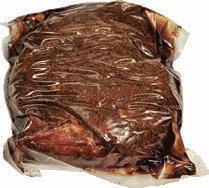














Continued from page 12
Reduce heat. Simmer over medium heat for 10 minutes. Remove from heat and stir in the saffron. Transfer to a bowl. Drizzle this mixture over rice and serve.
Serves 4 to 6
Cook’s Tips: •Pomegranate molasses is a Middle Eastern condiment made from boileddown pomegranate juice. It’s available online from Sadaf. •Turmeric is a flowering plant of the ginger family, ground and used as a spice.
Ingredients:
• 1 medium onion, thinly sliced
• 3 to 4 Tbsp. vegetable oil
• 1 tsp. turmeric
• 1/2 tsp. salt
• 1/4 tsp. pepper
• 1 large (4 to 5 pounds) chicken, cut into 8 pieces
• 1/4 cup pomegranate molasses dissolved in 3/4 cup warm water
• 10 pitted prunes
• 8 pitted dates
• 1/4 cup honey
• pomegranate seeds and fresh parsley (optional)
Directions:
In a large skillet, sauté the onion in oil over medium-high heat until golden brown. Add turmeric, salt and pepper. Add the chicken and fry on each side for 5 minutes. Add the dissolved pomegranate molasses, prunes, dates and honey. Cover and cook on medium heat for 10 to 15 minutes. Reduce heat, cover, and continue cooking for 30 to 40 minutes longer.
Arrange the chicken pieces on a platter. Drizzle the sauce over top. Decorate with pomegranate seeds and parsley, if using.
Roasted Stuffed Chicken (Meat)
Serves 4 to 6
Cook’s Tips: •Substitute 1-1/2 tsp. bottled minced garlic for 3 garlic cloves. •If there is extra stuffing, wrap in foil and bake alongside the bird.
Ingredients:
• 1/2 cup water
• 7 to 8 Tbsp. olive oil, divided

• 1/2 cup basmati rice
• 1 large onion, chopped
• 3 garlic cloves, minced
• 5 dried apricots, chopped
• 5 pitted prunes, chopped
• 2 Tbsp. raisins
• 3/4 cup fresh mixed herbs such as chopped parsley, dill, coriander
• 1-1/2 tsp. turmeric
• 1/2 tsp. saffron dissolved in 2 Tbsp. hot water
• 1 tsp. each salt and pepper
• 1 (4 to 5 pounds) roasting chicken
• 1 Tbsp. paprika
• Parsley sprigs to garnish
Directions:

In a medium saucepan, bring 1/2 cup water and 2 Tbsp. oil to a boil. Rinse the rice in cold water, drain and add to the boiling water. Cover and simmer for about 10 minutes until the water is absorbed. The rice will be halfcooked.
Preheat oven to 350 degrees.
In a medium skillet, sauté the onion and garlic in 3 Tbsp. olive oil over medium heat until the onion begins to brown. In a large bowl, mix the rice, onion, garlic, dried fruit and herbs, turmeric, salt and pepper. Fill the chicken cavity with the mixture. Seal by sewing or trussing the bird.
Brush the remaining olive oil over the bird. Sprinkle with paprika. Roast in preheated oven for 1 hour or until juices run clear when pricked in the thigh.
Transfer to a platter and garnish with parsley.
Makes 18 to 20 pieces
Cook’s Tips: •Traditionally uses filo dough. Shani’s shortcut: Pepperidge Farm Puff Pastry.
•Ground almonds, cardamom and rose water may be bought from a spice shop.
INGREDIENTS
• For the syrup: 2 cups sugar, 1 cup water, 6 Tbsp. rose water
• For the filling: 2-1/2 cups ground almonds, 1-1/2 cups confectioners’ sugar, 3 Tbsp. ground cardamom
• 1 (17-ounce) package puff pastry, thawed
• 3/4 cup margarine, melted
• ground pistachios (optional)
Directions: Preheat oven to 350 degrees. Prepare the syrup: Mix the sugar and water in a medium saucepan. Stir to dissolve the sugar. Bring to a boil over a medium-high heat. Add the rose water. Set aside.
Prepare the filling: In a bowl, combine the almonds, sugar and cardamom. Set aside.
To assemble: On a rimmed cookie sheet, spread one sheet of pastry. Brush generously with melted margarine. Sprinkle the almond filling over top, spreading evenly to cover. Top with a second pastry sheet. Brush with remaining melted margarine. With a sharp knife, cut the baklava into small squares. Bake in a preheated oven for 20 to 25 minutes. If not golden brown, place under the broiler for 3 minutes. Watch carefully! Remove from broiler or oven. Pour the syrup over top. Garnish with ground pistachios. Arrange on a platter. Serve warm or at room temperature.


Mount Sinai South Nassau’s Emergency Department has been selected as a recipient of the prestigious Emergency Nurses Association’s 2024 Lantern Award for outstanding patient care and reducing wait times, and for excellence in nurse retention, achieving a zero vacancy rate and one percent turnover rate.
The Lantern Award also recognizes nursing sta commitment to ongoing education and training and fostering an environment of learning and professional growth.
We congratulate Mount Sinai South Nassau’s Emergency Department nursing sta for their commitment to patient care, quality, safety and a healthy work environment.







Learn more at mountsinai.org/southnassau 877-SOUTH-NASSAU.
jewish star torah columnists:
•Rabbi Avi Billet of Anshei Chesed, Boynton Beach, FL, mohel and Five Towns native •Rabbi David Etengoff of Magen David Yeshivah, Brooklyn
•Rabbi Binny Freedman, rosh yeshiva of Orayta, Jerusalem
contributing writers:
•Rabbi Sir Jonathan Sacks zt”l,
former chief rabbi of United Hebrew Congregations of the British Commonwealth •Rabbi Dr. Tzvi Hersh
Weinreb, OU executive VP emeritus
•Rabbi Raymond Apple, emeritus rabbi, Great Synagogue of Sydney
•Rabbi Yossy Goldman, life rabbi emeritus, Sydenham Shul, Johannesburg and president of the South African Rabbinical Association.
contact our columnists at: Publisher@TheJewishStar.com
Five towns candlelighting: From the White Shul, Far Rockaway, NY
Fri Sept 13 / Elul 10
Ki Seitzei
Candles: 6:48 • Havdalah: 7:55
Fri Sept 20 / Elul 17
Ki Savo
Candles: 6:36 • Havdalah: 7:43
Fri Sept 27 / Elul 24
Nitzavim-Vayeilech
Candles: 6:24 • Havdalah: 7:31
Wed Oct 2 / Elul 29
Erev Rosh Hashana
Candles: 6:16
Thu Oct 3 / Tishrei 1
First Day Rosh Hashana (Tashlich) Candles: 7:15
Fri Oct 4 / Tishrei 2
Friday is 2nd Day Rosh Hashana • Ha’Azinu Candles: 6:12 • Havdalah: 7:20
rabbi
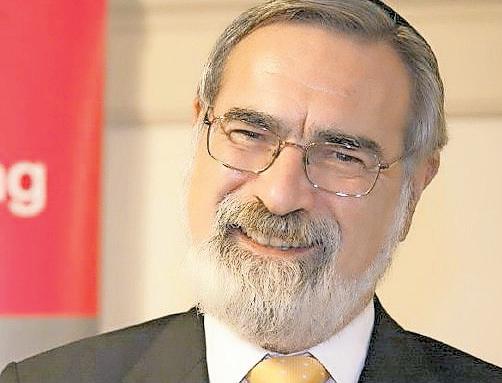
It is by any standards a strange, almost incomprehensible law. Here it is in the form it appears in Ki Seitzei, this week’s parsha: Remember what the Amalekites did to you along the way when you came out of Egypt. When you were weary and worn out, they met you on your journey and attacked all who were lagging behind; they had no fear of G-d. When the L-rd your G-d gives you rest from all the enemies around you in the land He is giving you to possess as an inheritance, you shall blot out the name of Amalek from under the heaven. Do not forget. (Deut. 25:17-19)
The Israelites had two enemies in the days of Moses: the Egyptians and the Amalekites. The Egyptians enslaved the Israelites. They turned them into a forced labour colony. They oppressed them. Pharaoh commanded them to drown every male Israelite child. It was attempted genocide. Yet about them, Moses commands:
Do not despise an Egyptian, because you were strangers in his land. (Deut. 23:8)
The Amalekites did no more than attack the Israelites once, an attack that they successfully repelled (Ex. 17:13). Yet Moses commands, “Remember.” “Do not forget.” “Blot out the name.” In Exodus the Torah says that “G-d shall be at war with Amalek for all generations” (Ex. 17:16). Why the difference? Why did Moses tell the Israelites, in effect, to forgive the Egyptians but not the Amalekites?
The answer is to be found as a corollary of teaching in the Mishnah: Whenever love depends on a cause and the cause passes away, then the love passes away too. But if love does not depend on a cause, then the love will never pass away. What is an example of the love which depended upon a cause? That of Amnon for Tamar. And what is an example of the love which did not depend on a cause? That of David and Jonathan. (Avot 5:19)
When love is conditional, it lasts as long as the condition lasts but no longer. Amnon loved — or rather lusted after — Tamar because she was forbidden to him. She was his half-sister.
Once he had had his way with her, “Then Amnon hated her with intense hatred. In fact, he
When either love or hate is unconditional and irrational, it never ceases.
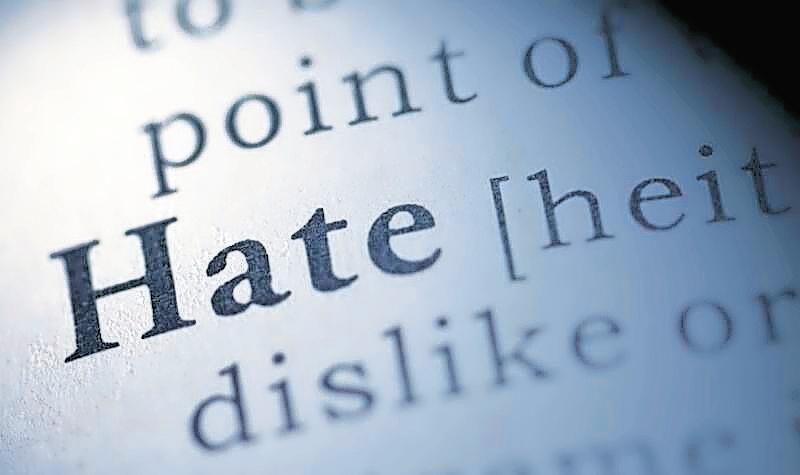
hated her more than he had loved her.” (II Sam. 13:15). But when love is unconditional and irrational, it never ceases. In the words of Dylan Thomas, “Though lovers be lost, love shall not, and death shall have no dominion.”
The same applies to hate. When hate is rational, based on some fear or disapproval that — justified or not — has some logic to it, then it can be reasoned with and brought to an end. But unconditional, irrational hatred cannot be reasoned with. There is nothing one can do to address it and end it. It persists.
That was the difference between the Amalekites and the Egyptians. The Egyptians’ hatred and fear of the Israelites was not irrational. Pharaoh said to his people:
“The Israelites are becoming too numerous and strong for us. We must deal wisely with them. Otherwise, they may increase so much that — if there is war — they will join our enemies and fight against us, driving [us] from the land.” Ex. 1:9-10
The Egyptians feared the Israelites because they were numerous. They constituted a potential threat to the native population. Historians tell us that this was not groundless. Egypt had already suffered from one invasion of outsiders, the Hyksos, an Asiatic people with Canaanite names and beliefs, who took over the Nile Delta during the Second Intermediate Period of the Egypt of the Pharaohs.
Eventually the Hyksos were expelled from Egypt and all traces of their occupation were erased. But the memory persisted. It was not irrational for the Egyptians to fear that the Hebrews were another such population. They feared the Israelites because they were strong.
(Note that there is a difference between “rational” and “justified.” The Egyptians’ fear was in this case certainly unjustified. The Israelites did not want to take over Egypt. To the contrary, they would have preferred to leave. Not every rational emotion is justified. It is not irrational to feel fear of flying after the report of a major air disaster,
despite the fact that statistically it is more dangerous to drive a car than to be a passenger in a plane. The point is simply that rational but unjustified emotion can, in principle, be cured through reasoning.)
Precisely the opposite was true of the Amalekites. They attacked the Israelites when they were “weary and weak.” They focused their assault on those who were “lagging behind.” Those who are weak and lagging behind pose no danger. This was irrational, groundless hate.
With rational hate it is possible to reason. Besides, there was no reason for the Egyptians to fear the Israelites anymore. They had left. They were no longer a threat.
But with irrational hate it is impossible to reason. It has no cause, no logic. Therefore it may never go away. Irrational hate is as durable and persistent as irrational love. The hatred symbolised by Amalek lasts “for all generations.” All one can do is to remember and not forget, to be constantly vigilant, and to fight it whenever and wherever it appears.
There is such a thing as rational xenophobia (fear and hatred of the foreigner, the stranger, the one-not-like-us). In the huntergatherer stage of humanity, it was vital to distinguish between members of your tribe and those of another tribe. There was competition for food and territory. It was not an age of liberalism and tolerance. The other tribe was likely to kill you or oust you, given the chance.
But within two or three generations the newcomers acculturated and integrated. They were seen as contributing to the national economy and adding richness and variety to its culture. When an emotion like fear of strangers is rational but unjustified, eventually it declines and disappears.
Antisemitism is different. It is the paradigm case of irrational hatred. In the Middle Ages Jews were accused of poisoning wells, spreading the plague, and in one of the most absurd claims ever
— the Blood Libel — they were suspected of killing Christian children to use their blood to make matzot for Pesach. This was self-evidently impossible, but that did not stop people believing it.
The European Enlightenment, with its worship of science and reason, was expected to end all such hatred. Instead it gave rise to a new version of it, racial antisemitism.
In the nineteenth century Jews were hated because they were rich and because they were poor; because they were capitalists and because they were communists; because they were exclusive and kept to themselves and because they infiltrated everywhere; because they were believers in an ancient, superstitious faith and because they were rootless cosmopolitans who believed nothing.
Antisemitism was the supreme irrationality of the Age of Reason. It gave rise to a new myth, The Protocols of the Elders of Zion, a literary forgery produced by members of the Czarist Russia secret police toward the end of the nineteenth century. It held that Jews had power over the whole of Europe — this at the time of the Russian pogroms of 1881 and the antisemitic May Laws of 1882, which sent some three million Jews, powerless and impoverished, into flight from Russia to the West.
The situation in which Jews found themselves at the end of what was supposed to be the century of Enlightenment and emancipation was stated eloquently by Theodor Herzl, in 1897:
We have sincerely tried everywhere to merge with the national communities in which we live, seeking only to preserve the faith of our fathers. It is not permitted us. In vain are we loyal patriots, sometimes super loyal; in vain do we make the same sacrifices of life and property as our fellow citizens; in vain do we strive to enhance the fame of our native lands in the arts and sciences, or her wealth by trade and commerce.
In our native lands where we have lived for centuries we are still decried as aliens, often by men whose ancestors had not yet come at a time when Jewish sighs had long been heard in the country. … If we were left in peace … but I think we shall not be left in peace.
This was deeply shocking to Herzl. No less shocking has been the return of antisemitism to parts of the world today, particularly the Middle East and even Europe, within living memory of the Holocaust. Yet the Torah intimates why. Irrational hate does not die.
Not all hostility to Jews, or to Israel as a Jewish State, is irrational, and where it is not, it can be reasoned with. But some of it is irrational. Some of it, even today, is a repeat of the myths of the past, from the Blood Libel to the Protocols. All we can do is remember and not forget, confront it and defend ourselves against it.
Amalek does not die. But neither does the Jewish people. Attacked so many times over the centuries, it still lives, giving testimony to the victory of the G-d of love over the myths and madness of hate.
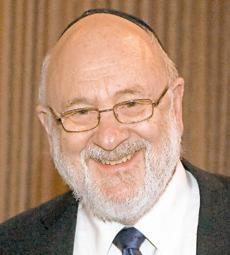
It seems that war is one of the most common of all human activities. Study history of the human race, and you will not find many years that were not blemished by warfare. Read the literature of the world, and you will find very few books whose pages are not bloodstained. Study the Jewish tradition, beginning with the Bible itself, and you will find very few narratives that do not contain the images of battle.
When I think back upon my own life, I immediately realize that I was born but several months after Hitler invaded Poland, and that my most outstanding early memories are of the men in my family in military uniform and of the parades celebrating victory at the end of the second world war. The wars of Korea and Vietnam dominated my high school and college years.
Of course, Israel’s many wars, major and minor, preoccupied me and my peers throughout our lives and continue to do so. Ironically, my
wife and I arrived in Israel this summer for a long stay, which, up until the time of this writing, has known war almost every day since we arrived, except for several brief periods of uncertain cease-fires punctuating missile bombardments, ground invasions, and the heart wrenching loss of life which inevitably accompanies warfare.
Reading the Torah portions of the week is no respite from the descriptions of war. Last week’s portion, Shoftim, contained lengthy paragraphs which could easily have been part of a military manual. “When you take the field against your enemies, and see horses and chariots — forces larger than yours — have no fear of them. … When you approach a town to attack it, you shall offer it terms of peace. … If it does not surrender to you. … You shall lay siege to it.”
This week’s portion, Ki Seitzei (Deuteronomy 21:10-25:19), begins and ends with themes of war. The opening verse reads, “When you take the field against your enemies…” The closing verses of the parsha enjoin us to remember the surprise attack launched against the Jewish people by Amalek and command us to “blot out the memory of Amalek from under heaven.”
Not only does this week’s Torah portion begin and end with martial themes, but about halfway
through the parsha we find the following words: “When you go out as a troop against your enemies, be on your guard against anything untoward. … Let your camp be holy; let Him not find anything unseemly among you…”
What is striking about all of these citations is that they are instructions to soldiers, to men who
are actively participating in battle. They are the ones who are instructed to be brave and to follow the codes of conduct mandated to men at war. There is no mention of commands for those not engaged in battle. What is the civilian population supposed to be doing while their brethren are risking their lives on the battlefield?
In the military operation in which Israel is engaged against Hamas at the time that these words are being written, I have been able to witness the extent to which civilians are involved in providing assistance to those who are engaged in the actual fighting. Indeed, those on the homefront who simply go about their business and try to maintain a sense of normalcy also contribute to the morale of those in the military service. As the signs say along Israel›s highways, “A brave homefront ensures a strong battlefront.”
Certainly, those who engage in special prayer sessions, who devote their hours of Torah study and charity activities to the merits of those on the battlefield, also contribute to the war effort and, when victory comes, will be able to say that even as civilians they helped achieve the desired goal.
Imust share with you, dear reader, a most inspiring conversation that I read in one of the weekly leaflets available in great variety in every Jerusalem synagogue on the eve of Shabbat. The conversation was between a young woman, who was just a girl when her older sister’s husband fell many years ago in one of Israel’s wars, and her friend. It was at a memorial service for that hero that the conversation was initiated.
See Weinreb on page 22

It was the height of the intifada, and we were in the midst of a month’s reserve duty. Deep in the heart of Hebron was an Israeli lookout position, meant to spot trouble on the road below and protect Israeli civilians driving through.
Every day, when kids from the local village got out of school, a hail of rocks, bricks, and bottles would come sailing through the air at the lookout, endangering and sometimes injuring the soldiers manning the post. Every time they called in local patrols, the perpetrators were long gone by the time the troops arrived.
One day, we decided to try a more innovative approach. The village was on the side of a hill above a valley, so we hiked up late in the morning, when everyone was already in school. By 12:15, we were in place behind a stone wall above the village, and the lookout post was clued in to let us know as soon as any action started.
At about 1 pm, bottles and rocks started flying, and we came out of cover, running down the hill. Suddenly, a frantic cry over the radio alerted us that the lookouts had spotted a masked terrorist down an alley, out of range. This was a serious matter; the men who wore those masks were usually members of the death squads that terrorized Arab and Israeli civilians alike.
I took off down the alley, following radio directions from the lookout post. Coming around a corner, I spotted him, waving a medieval mace above his head with one hand, and holding a Palestinian flag with the other. He turned and saw me, dropped the flag and the mace, and took off down the street.
I was running down the side of a hill, so he was lower than me, and I could only see the top of his body as he ran. He was headed into a maze of alleyways. Realizing I was about to lose him, I stopped running, aimed my rifle at his back, and yelled “Wakef!” (“Stop!”)
Technically, once ordering him to stop, I was allowed to shoot to kill to prevent the escape of a masked terrorist. I guess he realized this, because he stopped running.
To this day, I thank G-d he stopped. When I
got close enough to pull off the mask, I discovered that he was an eight-year-old boy.
Was this the enemy we were fighting against?
This week’s parsha, Ki Seitzei, seems to relate to this issue: “Ki Seitzei l’milchama al oyvecha (when [if] you will go out to war against your enemies)” (Devarim 21:10). There will come a time, suggests the Torah, when you will wage war. And there are specific mitzvot associated with such wars.
The verse here does not describe “waging” war; rather it speaks of “going out” to war. Is there a difference between fighting and “going out to” war?
The verse concludes: “U’netano Hashem Elokecha beyadecha, v’shavita shivyo”— and Hashem, your G-d, will give [your enemy] into your hands, and you will capture his captives.
Which is challenging, to say the least. Why does going out to battle merit, perhaps even guarantee, victory? And why does the verse add the seemingly moot point that we are going out to war “against our enemies”? Who else would we be fighting against?
Perhaps this is the key to this question.
To wage war, two conditions need to be met:
One needs to have enemies, and one needs to be able to identify them. If you don’t know who your enemies are, there is no point in going out to war. This may well be our challenge: confusion as to whom our enemies are, and whether indeed we need to wage war against them. They say you don’t make peace with your friends; you have to be willing to make peace with your enemies. But you can only make peace with an enemy who wants to make peace. Perhaps this is why no peace has ever been achieved without a war. Sometimes, until you are willing to win a war, you cannot begin the process of creating peace. Indeed, sometimes hesitation to fight impedes the pursuit of peace.
We admire restraint as a crucial ingredient to harmony. Yet imagine if the Allies had shown a little less restraint when Adolf Hitler took over Austria. How many tens of millions of lives might have been saved if America had not waited seven long years, and instead joined forces against Germany as early as 1935?
Perhaps this is why the verse speaks of “going out” to war. War, in a sense, requires us to step outside of the box we normally occupy.
Freedman on page 22
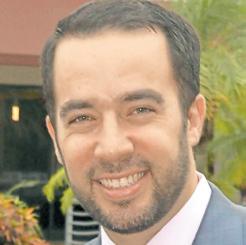
In this week’s parsha, Ki Seitzei, the last two verses of Chapter 21 describe a clear case. The corpse of a person executed by the court is to be hanged from a tree for a short period of time, presumably so people will learn to avoid crimes that incur the death penalty. After the brief hanging, the body is to be taken down and buried. Many of the commentaries note that the person in this case is guilty of cursing G-d, and the punishment was stoning. Seriously? Blasphemy = stoning?
The Torah depicts two stories for which the punishment was stoning — the blasphemer in Parshat Emor, and the Sabbath-day wood gatherer in Parshat Shlach. In both cases the verdict was delivered by G-d to Moshe, and Moshe in turn gave over the execution responsibility to all of Israel. Whether they found the execution distasteful or embraced the Divine edict, they par-
ticipated, knowing it was G-d’s will.
A few preliminary thoughts. First, we do not execute people for these crimes. Second, any execution is an extremely serious undertaking. Many societies today do not approve of execution because who are we to play G-d? Killing a murderer, they argue, makes us no better than the murderer. Third, not everything G-d tells us to do must be to our liking. Fourth, without a leader with a connection to the Divine, such as Moshe, this kind of pronouncement is not to be followed.
Targum Yonatan explains why the body must be buried immediately. “It is a disgrace before G-d to hang a person. But this person’s sins caused it! Yet since he is created in the image of G-d, he must be taken down and buried so people don’t mock him, and they shouldn’t have a chance to look upon the corpses of sinners…”
It’s not as much about punishment as it is about the dignity of a person, even after he has been executed.
Rashbam has the opposite perspective. “When people see a person hanging on a tree, they curse the judges … because they’re mad over the ‘small sin’ that has led to an execution, such as the Sabbath wood-gatherer. Since these things tend to
upset people, there’s no sense in giving further fuel for the cursing of judges.” Therefore the body is to be taken down right away.
It’s difficult to reconcile G-d’s laws with our distaste for seeing people treated that way, especially when the crime is one whose capital punishment is hard to understand.
And so I want to take the message to a level I hope we can understand. Kohelet (7:20) teaches us that “there is no righteous person in the land who does good and does not sin.” In other words, people are flawed. No one is a tzaddik all the time. It is impossible.
For some lapses, people suffer humiliation, which is compared to death (“one who whitens the face of his friend is as if he has murdered him”). In other words, persons who embarrass themselves on account of their deeds, that humiliation is upon them. It’s their fault.
But the person who aims to humiliate them again is guilty of murder!
How quick are we to remember the negative things we know about a person? How ready are we to share what someone did a long time ago, when there is no evidence that they are still doing it?
Which Jew do you still refer to as a baal tes-
huvah, even though the person has been living a Torah lifestyle for many years? Which Jew, who chose to join the Jewish people years ago, do you still refer to as a “convert?”
These titles should be points of honor! But the reality is that too many people look at those they label this way as deficient, as not good enough, as people who don’t know everything a Jew knows, as people whose lapses need to be explained because they “didn’t grow up the way we grew up.” This is humiliation. This is hanging the corpse again. This should be as detestable and as distasteful as having our own skeletons taken out of the closet by others to destroy our lives again.
Rosh Hashanah and Yom Kippur are around the corner. Let us be mindful not to embarrass those who have suffered humiliation due to the past. That past is history; they are living a new life void of those past behaviors.
Teshuvah is possible! If they’ve achieved it, their past deeds should never come up again in conversation, because we’d be guilty of making associations about people we know, using deeds of people who look and sound like them, but no longer exist.
And that is a terrible crime.
Published weekly except during certain religious and civil holidays by The Jewish Star LLC New York City office: 5676 Riverdale Ave Suite 311, Bronx NY 10471 • LI office: 2 Endo Blvd, Garden City NY 11530
Here’s how to reach The Jewish Star — Write: Editor@TheJewishStar.com. Call: 516-622-7461 ext 291
Editor & Publisher: Ed Weintrob
516-622-7461 ext 291
Jewish Star Associate: Nechama Bluth, 516-622-7461 ext 241.
Content: The Publisher endeavors to ensure that our content is within the bounds of normative halachah and hashkafah. Anyone who feels anything we publish may be inappropriate in this regard is urged to bring the item in question to the attention of the Publisher. Advertising is accepted at the sole discretion of the Publisher and should conform to standards appropriate for distribution in an Orthodox community.
Send us your news! Editor@TheJewishStar.com
Advertising: Publisher@TheJewishStar.com
Kashrut: The Jewish Star is not responsible for the kashrut of any product or establishment featured in its pages. If you have questions regarding any establishment or product, including its supervision, please consult your rabbi for guidance.
Submissions: All submissions become the property of The Jewish Star and may be edited and used by the Publisher, its licensees and affiliates, in print, on the web and/or in any media that now exists or will exist in the future in any form, including derivative works, throughout the world in perpetuity, without additional
authorization or compensation. The individual or entity submitting material affirms that it holds the copyright or otherwise has the right to authorize its use in accordance with The Jewish Star’s terms for submissions.
Opinions: Views expressed by columnists and other writers do not necessarily reflect the position of the Publisher or of The Jewish Star LLC.
Distribution: The Jewish Star is available free in kosher food establishments, stores, synagogues, and curb-side newsboxes on Long Island, in New York City and elsewhere. To request free delivery to your location, write Publisher@TheJewishStar.com.
Copyright: All content is copyright and may not be republished or otherwise reproduced without written permission by The Jewish Star LLC; to do so without permission is against the law and halacha. For content reproduction write to Publisher@TheJewishStar.com.
The Jewish Star subscribes to the JNS news service. It, or its contributors, own the copyrights on material attributed to them. The length and content of JNS material and all other submitted material may be edited by The Jewish Star.
This newspaper contains words of Torah; please dispose of properly.

In a more perfect or at least saner world, we could afford to ignore Tucker Carlson. The former Fox News host’s ties to former President Donald Trump make his recent foray into crackpot lunacy with a program about Holocaust denial — on his show that appears on X, the social-media platform formerly known as Twitter and owned by billionaire entrepreneur Elon Musk — something that must be addressed, especially by conservatives.
The immediate issue facing Republicans is whether they are willing to countenance the continued presence of someone who is no longer hiding their antisemitic views in their presidential candidate’s inner circle on the eve of a crucial election. If they can’t summon the will to banish him to the fever swamps of American political life, they will not only be giving a crucial boost to otherwise marginal antisemites on the right but essentially conceding the election to the Democrats.
In this context, the questions to ask about Carlson are not confined to the justified outrage about his fawning, two-hour-long interview with faux podcast “historian” Daryl Cooper, during which Nazi motivations and culpability for the Holocaust were falsely downplayed and Winston Churchill, rather than Adolf Hitler, was depicted as the true villain of World War II.
It is now incumbent on all decent people, and especially those on the right, to demand that Carlson no longer be treated as a mainstream figure. Call it cancel culture, if you like, but the notion that someone who thinks it is acceptable or legitimate to question the truth about the Holocaust ought not to have access to a potential president, as Carlson appears to have with Trump, even if the latter’s pro-Israel policies are the opposite of those of the former Fox News host.
During his seven-year run on Fox News, Carlson built an enormous following. It might well be said that during the Black Lives Matter summer of 2020, he became the tribune of contemporary conservatism with his articulate critique of the moral panic that swept the
nation in the wake of the death of George Floyd at the hands of Minneapolis police officers and the “mostly peaceful” riots that ensued.
Though his soft spot for tinfoil hat controversies was no secret — such as his fascination with UFO conspiracy theories — his main focus was on the issues that most conservatives and many centrists cared about, such as illegal immigration, critical race theory indoctrination and the corrupt liberal elites that seek to squelch all opposition to their continued hold on power.
The one indication of a problem with Jews was his steadfast avoidance of any discussion of Israel. During his time on Fox, Israel was the one word that was almost never mentioned between 8 pm and 9 pm. Though his animus towards the Jewish state was not exactly a secret, in this way he avoided clashing with the sensibilities of the Republican (especially conservative Christian) electorate that made his show the most popular on cable TV news.
Yet once he was fired last year in the wake of revelations from lawsuits in which his texts slamming his employers (and Trump) were revealed, the guardrails on his commentary were discarded. He began a weekly show that appeared on X — whose view totals look impressive but are nothing remotely close to the actual viewers who tuned into his Fox show — in which it soon became clear that he now felt liberated to tell his fans what he really thought.
That included his open contempt for American Jews who cared about the fate of Israel after Oct. 7 and the worst mass murder of their brethren since the Holocaust. He made sure to platform those who spread slanders of the Jewish state, including Candace Owens, a conservative commentator who has gone off the deep end in the last year with increasingly deranged antisemitic rants.
His recent show with Cooper, however, crossed a different line. As such, it ought to provoke the sort of reaction that would seriously impinge on his ability to maintain his grasp on influence with people who matter, such as the Trump family and mainstream politicians.
Although he pretends that he is “just asking questions” and looking into a topic that has never been adequately explored, the discussion with Cooper about the cause of World War II and the Holocaust is familiar territory. Much like other “historians,” such as the disgraced David Irving, Cooper is doing nothing more than recycling Nazi propaganda from the 1930s and ’40s about Hitler’s peaceful intentions and Churchill being a warmonger.

and the testimonies of millions of people. Cooper’s ideas are simply lies whose antisemitic intent is easily discerned. They have as much validity as a theory of history worthy of debate as those who claim that the earth is flat. The fact that Carlson would not only feature such a person on his show but fall over himself to claim that a crackpot podcaster is the most important popular historian of our time speaks volumes about his own mindset.
That such a program would get over (as I write this) 19 million views is troubling, even though an X view just means a click on the post and not that so many people watched even a few minutes of the show. The 15,000 and 51,000 likes are a better indication of the size of Carlson’s current fan base.
What makes Carlson dangerous isn’t the fact that this many people take his spreading of hate speech seriously; it’s that he remains firmly embedded as a friend of the Trump family. He is frequently seen socializing with Donald Trump Jr., as well as the former president, at events like professional wrestling shows. That status earned him an evening speaking slot at the recent Republican National Convention.
But the names that stand out on the list of those who will be appearing with him are those of Donald Trump Jr. and Sen. JD Vance, Trump’s vice-presidential running mate.
It’s one thing to be what has sometimes appeared to be the court jester at Mar-a-Lago. It’s quite another for someone who promotes Holocaust denial to be making joint appearances with the son and chief surrogate for the Republican candidates for president and vice-president. Will any of his stage partners challenge him? I can imagine Kelly doing that, but it’s doubtful that any of the others will dispute Carlson’s claim that his critics are trying to cancel him for merely airing a debate about “history.”
Vance, who aspires to be a heartbeat away from the presidency, needs to understand that holding what will be perceived as a campaign event — that show is scheduled to be held in Hershey, Pa., on Sept. 21 in the heat of a presidential campaign in a swing state — needs to be held to a higher standard.
Unlike the controversy over the former president’s dinner with Kanye (“Ye”) West, which could, unconvincingly, be dismissed as an insubstantial kerfuffle, Carlson’s standing in Trump’s inner circle is a real problem for the GOP as well as a disgrace.
His claim that the Jews murdered in death factories were merely prisoners of war or people rounded up who eventually died because the Nazis were unprepared to deal with so many captives is contradicted by the historical record
This month, he will be doing a national tour of live events in which he is paired with a variety of more mainstream celebrities such as journalist Megyn Kelly, entrepreneur Vivek Ramaswamy, former Hawaii Rep. Tulsi Gabbard and politician Robert F. Kennedy Jr., as well as more marginal figures like Rep. Marjorie Taylor Greene (R-Ga.), musician Kid Rock, actress Roseanne Barr and conspiracy theorist Alex Jones.
Carlson is a longtime admirer of Vance, and reportedly was, along with Donald Jr., a strong advocate for the decision to tap him for the vicepresidential nomination. Like Trump, Vance is a strong friend of Israel and opponent of antisemitism. But the idea that someone on a national
This is not some made-up controversy contrived by the left to trip Trump up. See Tobin on page 22

States that commit genocide do not make distinctions between military personnel and civilian populations. They don’t agree to pauses in their military campaigns to allow the delivery of humanitarian relief. They seek to obstruct, rather than cooperate with, international agencies dealing with the emergency housing and medical needs of the targeted population.
Should fatal diseases break out among the displaced and dispossessed, as is often the case, they seek to cover these up, instead of acknowledging and countering them.
All of which means one of two things. In the Gaza Strip, Israel is either waging the strangest genocide in the ghastly history of that phenomenon, or it isn’t waging one at all.
Over the last week, Israel has helped the World Health Organization and UNICEF roll out a major vaccination campaign in Gaza against polio following the first case of the virus there in 25 years. More than 1.25 million doses of the vaccine arrived in Gaza on Aug. 25, facilitated by Israel through its Kerem Shalom crossing into the coastal enclave.
If this was a war on civilians, there would be no vaccine. But it isn’t. It’s a war against Hamas.
On Aug. 31, COGAT — the Israeli Ministry of Defense unit responsible for the humanitarian situation in Gaza — formally announced the start of the vaccination campaign aimed at Gaza’s children, specifying both times and locations where the vaccine could be obtained. Israel also transferred cooling equipment into Gaza to preserve the vaccines.
The goal is to inoculate 640,000 Gazan children against the disease. A statement from WHO on Sept. 4 confirmed that in the first phase of the inoculation campaign, in central Gaza, 187,000 children had received the vaccine, exceeding the target for that area by 30,000.
“It has been extremely encouraging to see thousands of children being able to access polio vaccines, with the support of their resilient families and courageous health workers, despite the deplorable conditions they have braved over the last 11 months. All parties respected the humanitarian pause and we hope to see this positive momentum continue,” commented Richard Peeperkorn, WHO’s representative for Gaza, which is probably the closest Israel will get to receiving a vote of thanks from this agency, which is not exactly known for its warmth towards the Jewish state.
The campaign has now moved to southern Gaza, where crowds of Palestinian families gathered to receive the vaccines, before being completed in the northern part of the strip in its final phase.
It’s hard to think of another state, particularly one enveloped in a war of survival, which would go to such lengths to protect children in the combat zone from this devastating illness that can paralyze parts of the body.
Russia, which has been kidnapping children in Ukraine, certainly wouldn’t do the same. Nor would Turkey, which has sent its armed forces into neighboring Syria and continues its genocidal campaign against its Kurdish minority.

Ditto for China, Burma/Myanmar, Sudan and all the other countries where real genocides are underway, prosecuted by political and military leaders whose aim is for the victims they are targeting to die as rapidly and in as great a number as possible.
As befits a movement that places its hands over its ears whenever inconvenient facts crop up, the global pro-Hamas mob has either been silent on the vaccine campaign or promoted ridiculous conspiracy theories accusing Israel of planting the virus and then rolling out a fake vaccine. Ironically, most Palestinians do not seem to share this perspective.
When Bisan Owda, a Gazan social-media influencer, warned that the emergence of polio was the consequence of an anti-Palestinian conspiracy, she received short shrift from Nour Alsaqa — another Gazan influencer and hardly a friend of Israel — who pointed out that the first polio case was registered and publicized by the Hamas-run Health Ministry! Alsaqa pointedly asked Owda why her video denouncing the vaccination effort was posted in English “when the targeted population is Gazans who speak Arabic.” She concluded that Owda was simply “seeking attention online … again.” I am not going to disagree with that assessment.
See

Turning out for a barbecue is nice; showing up for Israel is essential.
The University of Maryland Hillel rightly took pride in hosting a back-to-school barbecue that attracted 1,500 Jewish students. However, the event was partly overshadowed by the university administration’s unconscionable decision to allow Students for Justice in Palestine and Jewish Voice for Peace to hold an affair on Oct. 7. After facing significant backlash and unfavorable publicity — the only thing besides money that moves administrators — UMD reversed its approval of the event for student promoters of terrorism.
It is still unclear how and if UMD will enforce its decision. The university’s statement about using Oct. 7 to “continue these urgent conversations” and “mark this solemn anniversary” is insufficient. Hamas in Gaza just brutally murdered six more hostages.
The Iranian proxy Hezbollah in Lebanon adds daily to its total of 8,000 rockets fired into northern Israel, so what kind of conversations are we talking about? Will we hear chants like “From the river to the sea”? Masked agitators targeting Jewish students? Speakers who glorify Hamas?
This is a test of Hillel’s mettle. Convincing Jewish students to show up for food is one thing; mobilizing them to stand up for Israel’s survival is quite another.
Rabbi Ari Israel is one of Hillel’s longest and strongest directors. Hopefully, he and his colleagues countrywide spent the summer planning for another antisemitic tsunami and the commemoration of the terrorist attacks in southern Israel on Oct. 7. UMD alone has a potential army of 6,000 Jewish students who need to be motivated to march, dance, sing and stand

solemnly while holding pictures of the remaining hostages and being unafraid to wave Israeli flags.
Can he mobilize his troops to show the same level of enthusiasm and commitment to honoring the memory of the 1,200 victims of the Hamas massacre as they did consuming a meal?
Hillel can inspire battalions of tens of thousands. Besides UMD, other schools with large Jewish student populations include colleges in Florida and New York, Rutgers, the University of Wisconsin in Madison and the University of Michigan. Many have also been hotbeds of antisemitism, but instead of cowering as too many Jews did last year, it is time to fight, if only metaphorically.
•Have students been building alliances over the summer, or will they face hostile student organizations alone again?
•To PETA, have they highlighted Hamas’ cruelty to animals through videos shot by terrorists killing pets?
•Have they reached out to Muslim students who are appalled by Hamas’ brutality towards Muslims?
•Have they addressed the plight of Christians under Hamas and taught them the Islamist slogan: First, the Saturday people and then the Sunday people?
•Have they informed environmentalists of the devastation of forests, agricultural lands and animal habitats resulting from Hamas and Hezbollah rockets?
•Have they made LGBTQ groups aware that Israel is a haven for queer Palestinians and recognize that Hamas would execute everyone involved with Queers for Palestine?
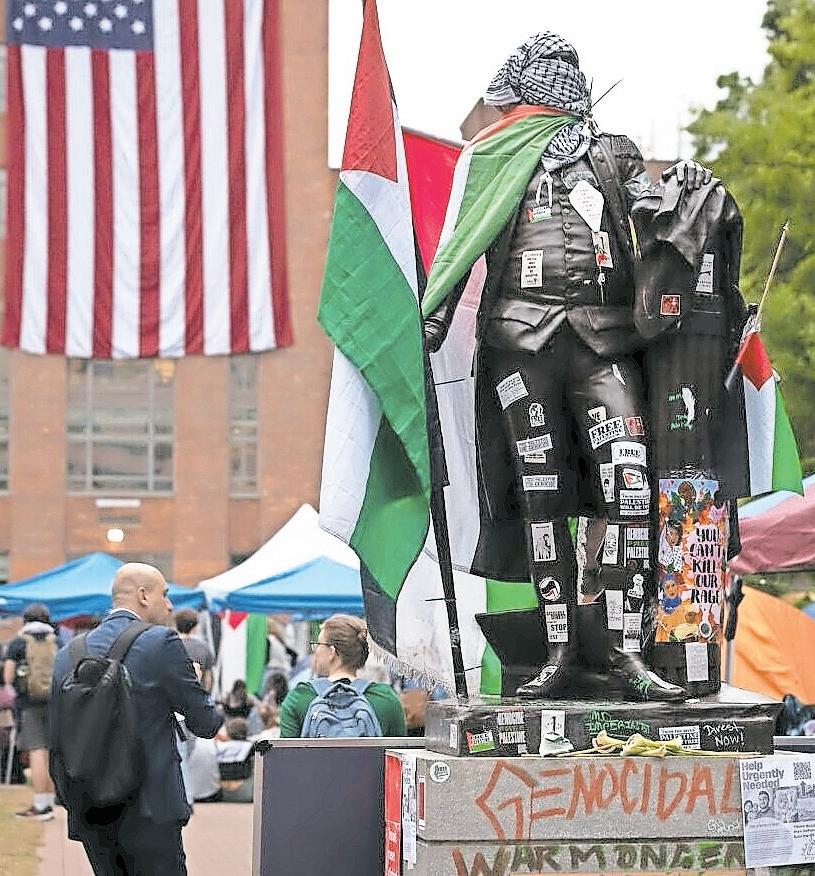
The Jewish Star

Once again, I had the privilege of writing and producing a newsletter for Camp Simcha Special. Now I can share some information about what this camp is really about.
Camp Simcha and Camp Simcha Special are the biggest projects of Chai Lifeline, an organization that supports families with a child (or in some cases more than one child) who is sick with a chronic illness or cancer. Close to 880 children go to camp in Sullivan County or have the camp experience by attending Camp Simcha Without Borders.
The theme for this summer was “Let the Games Begin.” Each day when we played another game — including Candyland, Codenames, Monopoly, Battleship, Twisted Kichels, and Ticket to Ride — life-size sets and decorations were built in the camp dining room.
This year, the girls performed the play “Charlie & the Chocolate Factory,” giving it their all and putting huge smiles on everyone’s face.
As for the newsletter, last year one of the counselors told me about a camper who wouldn’t stick with reading or listening to something that didn’t interest her, but that “something caught her eye about the newsletter. She got to see the pictures and graphics. Once she was listening to me read it to her she wanted to hear more. She made me read her the entire thing and she loved it!”
This year, a counselor recounted that her
Knowing that the campers enjoyed the newsletter made all the difference.

Life-size “Monopoly” was one of the games that were part of this summer’s theme of “Let the Games Begin.”
“camper was sitting at a table flipping through the newsletter and couldn’t stop reading and looking at all of the graphics, she was so excited to be reading it and couldn’t put it down. She wanted to see more and she did when the next newsletter came out. She was even more excited to see the second, as it recapped all of her favorite days in camp.”
I was so moved by these stories that I would stay up late at night or get up early in the morning, putting the newsletter together, making sure I got everything done. From writing, the correct details and information, proofreading, editing, pictures, formatting and printing. It was very time-consuming but all worth it.
It’s the little things that really make an impact on the campers. While my newsletter was one aspect of camp and it was small, knowing that the campers really enjoyed it made all the difference.
There’s a lot that goes on in camp, from the meals to all of the activities. The days are long (and when I say long, I mean really long) but the weeks are so very short. What a regular, standard sleep away camp does in a month, Camp Simcha and Camp Simcha Special do in about a week.
As a staff member I know (and not only me but everyone around me) that I am doing my job for the campers. Everything we do is to bet-
ter the lives of the campers each day we are in camp, not just in camp but outside camp as well. There are a few extra special activities that the camp plans for the campers to enjoy. It could be anything from a shooting range, helicopter rides, motorcycle rides, and riding in Lamborghinis (and other stylish cars). They even had a cybertruck as one of the stylish cars. Additionally, camp has great Jewish music concerts that are always something that not only the campers enjoy but the staff as well. Being able to bring joy and smiles to the camper’s faces while also enjoying the concerts was a blast. One of the highlights of the summer was wit-
Counter Extremism Project

Ijoined hundreds of Argentinians and delegates from around the world outside the Asociación Mutual Israelita Argentina (AMIA) in Buenos Aires last month to commemorate the 30th anniversary of the bombing on July 18, 1994, which killed 85 people and wounded 300 others.
As we stood in front of the rebuilt AMIA building — itself a symbol of Argentinian resilience and rejection of terrorism — we listened solemnly as the names of the 85 victims were read from the stage as their images flashed on a giant monitor facing the crowd, which included Jews and non-Jews. People had come from around Argentinia and the world to stand there and shout Presente! (“present”) as Argentina marked the tragedy and called for justice not just for the Jewish community of Buenos Aires but for all of Argentina.
Though investigations concluded that Hezbollah, under the direction of Iran, was responsible for this horrific act of violence — as well as the attack two years earlier, on March 17, 1992, at Israel’s embassy in Buenos Aires, which killed 29 and wounded 242 — no one has been held accountable or brought to justice. While Argentinians continue to call for justice, on the other side of the world Hezbollah continues to
EDITOR’S

sow terror and death from its base in Southern Lebanon as it continues its attacks on Israel.
Before the attack in Argentina, in April 1983, Hezbollah bombed the US Embassy in Beirut, killing 63 people, followed by an attack on US Marine barracks later that same year, which resulted in 241 deaths.
For four decades, Hezbollah has wrought destruction around the world. The international community has loudly condemned the Iranian
proxy and demanded that it cease its campaign of death but has failed to significantly impact Hezbollah’s behavior, except to embolden the terror group. Since Oct. 8, its operatives have launched 8,000 rockets and missiles towards Israel, displacing tens of thousands of people while Hezbollah’s leadership continues to threaten further missile strikes into central Israel.
At the end of August, the UN Security Council renewed the mandate of the UN Interim Force in Lebanon (UNIFIL), the peacekeepers tasked since 1978 with assisting the Lebanese Armed Forces in maintaining calm along the Lebanon-Israel border. UNIFIL
has been present in Lebanon for 46 years. And in that time, it has proven to be grossly ineffective, even a hindrance, when it comes to delivering peace.
In July 2006, Hezbollah launched a crossborder attack on Israel, sparking a month-long war that ended with UN Security Council Resolution 1701. In addition to a conclusion of hostilities, the resolution called for strengthening UNIFIL to facilitate the entry of Lebanese forces into the Hezbollah-controlled area to maintain a demilitarized zone between the Blue Line (the border between Israel and Lebanon) and the Litani River, effectively disarming Hezbollah within its stronghold. At least, that was the idea.
UNIFIL has remained impotent, playing the role of spectator as Hezbollah not only rearmed after the 2006 war but spread into Syria during that country’s civil war in 2011. In its 46-year existence, UNIFIL has witnessed Hezbollah’s continued violence and aggression with the group being responsible for numerous deadly attacks. Its hostility continued with a cross-border assault on July 12, 2006, which killed eight Israeli soldiers, and led to the capture and eventual deaths of two others. The subsequent 34-day war saw Hezbollah, armed by Iran, fire thousands of rockets into Israel, resulting in the deaths of 49 Israeli civilians and 121 soldiers. Then, on July 18, 2012, exactly 18 years after the AMIA bombing, Hezbollah orchestrated a suicide bombing on an Israeli tour bus in Burgas, Bulgaria, claiming six lives.
Since the passage of Resolution 1701 in 2006, Hezbollah has spread into Syria, taking up arms on behalf of dictator Bashar Assad in his country’s civil war and dragging Lebanon into another regional conflict. The ter-

Continued from page 17
“I find it difficult to absorb,” the young woman said to her friend, “that he died so that I could live. Every time I see the pictures in recent newspapers of fallen soldiers, I can’t help but be haunted by the fact they were willing to die, and actually did die, just so that you and I could live our lives.”
Her friend responded, “I too find it difficult to absorb. It is a simple fact that these young men, only one or two whom I knew even vaguely, gave their lives so that I might live. But I take it one step further. I ask myself whether my life is worthy of that soldier’s ultimate sacrifice.”
She continued: “What disturbs me is that in all honesty, I must say that the life I have been living is far from worthy of his sacrifice. What is my life? Another mall, another insipid television program, another flirtatious relationship. Surely, these boys did not have to die to preserve such an empty life. I find myself searching inwardly in ways that I never had before. I want to redefine my life so that I can somehow justify that soldier’s indescribable heroism.”
The first young woman concurred. And so does everyone to whom I have related this inspiring conversation.
There is a growing consensus, and it is a profoundly introspective one, that our lives must change so that we can collectively deserve the kinds of sacrifices we are asking of our young chayalim. They must feel certain that the risks that they are taking are on behalf of a people who are devoted to the highest ideals and who are living lives that are so meaningful and upright that they deserve defending, even at the cost of the tragic losses that we have all painfully witnessed this past month or two.
So civilians have a duty, too — not just soldiers. Civilians have the duty to examine their lives and to improve them fundamentally, so that the soldier on the battlefield can say, “I am fighting to protect and preserve lives which are worth fighting for, and dying for.”
Continued from page 17
It is good that we live in a world of tremendous desire for peace. And the fact that war is outside of our normal “box” is what guarantees that our wars will be waged as only a nation striving to be an ethical light unto the world can hope to achieve.
More than any other experience, the battlefield determines whether we really believe that Hashem runs the world. Bullets don’t know about statistics, and if your number is up, it’s up. To run up a hill under enemy fire, you have to believe that it has nothing to do with you, because if you thought your survival depended on your actions, it would be madness to try.
Perhaps, then, war is an opportunity to step outside reality and encounter a degree of truth. Perhaps this is why we read Ki Seitzei in the month leading up to Rosh Hashanah, the day when we rediscover the concept of malchut, royalty, and the idea that it is G-d who runs the world.
But before confronting the forces of evil, we must first begin with ourselves. Every one of us has an opportunity to go to war — not against the forces of evil we read about in the papers, but against the dark challenges within.
If we really want this year to be different, the question is how far we are willing to step outside of the boxes we have created for ourselves.
Continued from page 18 presidential ticket would appear with a Holocaust denier weeks before the election is both inconceivable and disqualifying. Vance must withdraw from the event. The younger Trump should do the same.
Why did Carlson choose this crucial moment only two months before the election to air such a show? One theory comes from my JNS colleague
Caroline Glick. She wrote on X that Carlson is deliberately trying to sabotage Trump because a Kamala Harris presidency would enhance his standing as an opposition voice; therefore, inciting a Republican civil war right now is in his interest and gives a boost to antisemites on the right. I don’t know for sure that this is his intention, but the practical effect of what he’s done could be exactly what she describes.
One other aspect of this disturbing story is that Musk actually endorsed Carlson’s show with Cooper, writing that it was “Very interesting. Worth watching.” That foolish post reflects the mercurial nature of the billionaire as well as his bad judgment.
Still, whatever we think of him, the idea that this should be another reason to shut down or hinder X is as dangerous as Holocaust denial. For now, the relevant question is what Republicans, and more pointedly Trump, are going to do about Carlson.
Perhaps Musk’s deletion of that post was the first indication that Carlson’s antisemitic journey has reached a turning point.
The precedent here is the effort made by the late William F. Buckley to rid the modern conservative movement that he helped found in the 1950s by starting National Review magazine of right-wing nuts and antisemites. In the 1960s, he effectively canceled members of the John Birch Society, a lunatic fringe group with a large following. He did the same 30 years later by making it clear that conservatives who dabble in antisemitism like Joseph Sobran and Pat Buchanan must be refuted and marginalized. It is hard to think of anyone less like Buckley, an urbane, patrician intellectual, than Trump. But the former president is presented now with the same opportunity to make clear in no uncertain terms that he will have nothing to do with Holocaust denial and antisemitism. Failing to do so would be similar to the way President Joe Biden and Vice President Kamala Harris have refused to unreservedly condemn the pro-Hamas and antisemitic mobs demonstrating against Israel since Oct. 7.
Everything we know about Trump tells us that he will always refuse to do what conventional wisdom tells him he must because he will be falsely condemned as an extremist and antisemite, no matter what he says or does. Nevertheless, he needs to make an exception in this case.
Rebuking Carlson and making it clear he is no longer welcome to tag along at his events is something that will be difficult for him and might upset some of his voters. But this is not some made-up controversy contrived by the left to trip him up.
Carlson’s actions and statements are a direct threat to his campaign and a frightening effort to mainstream the hatred of Jews. He must be put in his place, and condemned by Trump and Vance, if the Republicans are to defeat Harris and have a chance to make good on their promise to rid the government of the toxic disease of woke ideology that is empowering antisemitism on the left.
If they don’t, the consequences for the Republicans and the hopes to roll back the tide of antisemitism that has been surging on the left and now apparently on the far right, are too frightening to contemplate.
Continued from page 19
To be crystal clear, I’m not arguing that the vaccination campaign means that Gaza’s Palestinian population suddenly views its Israeli neighbors through rose-colored spectacles. What I am saying is that the vaccine drive, which absolutely would not have been possible without Israel’s consent and practical assistance, is important evidence in countering the monstrous lie that Israel’s goal is to exterminate every last Palestinian.
If this was a war on civilians, there would be no vaccine. But it isn’t. It’s a war against Hamas, the terrorist organization that sparked this conflict in the first place with its Oct. 7 pogrom and whose actions have caused misery for the people they claim they want to liberate.
Yet one can hardly expect the Israel-hating protesters on American and European campuses to show some humility when too many of their
governments are bolstering the view that Israel is a rogue state deliberately committing war crimes and crimes against humanity.
I’m not talking here about Iran or Turkey or Qatar — states whose leaders have fawned over the Hamas rapists for almost a year now. I’m talking about ostensible allies of Israel (and the United States) who have tried to tie Israel’s hands militarily, by unilaterally recognizing Palestinian statehood and cutting off supplies of weapons to the Israel Defense Forces.
The latest example of this shameful behavior involves the newly elected Labour government in the United Kingdom, whose foreign secretary, David Lammy, announced on Sept. 2 that 30 of 350 arms export licenses to Israel had been suspended out of concern that the Jewish state would use this materiel in violation of international humanitarian law.
Lammy made the announcement as Israeli troops discovered the bodies of six hostages, including Israeli-American Hersh Goldberg-Polin, after they were brutally executed by their Hamas captors in Gaza, as well as in the wake of Israel’s announcement that it was transferring the polio vaccines as a matter of urgency. Hiding this shabby political maneuvering behind the excuse of impartial legal advice, both Lammy and Prime Minister Sir Keir Starmer have distinguished themselves by rounding on Israel in a moment of excruciating pain for the entire nation. Israelis are unlikely to forget that insult for a long time, if at all.
The United Kingdom, which happily supplies weapons to abusers like Turkey and China without worrying about legal advice, has joined a list of other countries that have implemented similar restrictions, among them Spain, the Netherlands and Canada.
None of this will have much impact on Israel’s fighting capabilities since more than 90% of the IDF’s imported weaponry comes from the United States and Germany. The threat these measures represent is political, encouraging neutral observers to draw an equivalence between the IDF and Hamas, and to reinforce the view that while Israel may theoretically have the right to defend itself, in practical terms it doesn’t.
At the same time, such measures suggest to Israel’s implacable enemies that their positions are essentially correct and that the power of the “Zionist lobby” is what prevents their governments from endorsing their line wholesale.
That Israel rises above the fray and makes the right decisions regardless is to its eternal credit.
Continued from page 19
Some Jews might be uncomfortable with the war metaphor, but the reality is that Israel is fighting for its survival, and students can’t sit on the sidelines. They must choose a side. Whether they call themselves Zionists or not, do they believe that Israel has a right to exist, or do they support the protesters who wish to extinguish the Jewish state?
Look at the ages of some of the Israeli soldiers who have fallen. Just last month: Sgt. Elkana Navon, 20; Staff Sgt. Amit Friedman; Maor Yehuda, 19; 1st Sgt. David Moshe Ben Shitrit, 21; 1st Sgt. Amit Tsadikov, 20; Sgt. Ori Ashkenazi Nechemya, 19; Lt. Shahar Ben Nun, 21; and Sgt. Omer Ginzburg, 19.
Students, these are your peers. While you’re enjoying campus life, others your age are battling not just for their fellow Israelis, but for you and Jews everywhere. They fight day and night to rescue the hostages, some of whom are your age, before Hamas can kill any more of them.
You don’t have to like Benjamin Netanyahu or agree with every policy of his government. You can feel sympathy towards the Palestinians. Is it too much to ask that you dedicate some time on Oct. 7 to honor the memory of those massacred and demand that Hamas release the hostages?
The horror is unimaginable, but you must face it and make it known to your classmates. Educate them about the atrocities — the rapes, the mutilation of bodies, the parents and children shot in front of each other, the people burned alive. Show the videos filmed by the terrorists as they slaughtered Jews and Palestinian civilians hap-
pily participated and celebrated the massacre. Let them try to deny reality, then. UMD already took a positive step by screening “We Will Dance Again,” which portrays the events at the Nova Music Festival and tells the personal stories of individuals who experienced that horrific day. Remind those who believe that peace will come through Israeli concessions that some victims were dedicated peaceniks — people who lobbied the government to allow Gazans to work on their kibbutzim, who drove Gazans to the hospital, who advocated for a Palestinian state. By all means, gather together in fellowship for barbecues and merriment during the year, but Oct. 7 must be a day to show strength, resolve, empathy, resilience and respect for the dead. Commit to doing what you can to support Israel, whether going on Birthright, donating money, writing articles for the school paper, fighting divestment resolutions in student government, demonstrating or studying Hebrew.
Just do something!
Continued from page 20
nessing the campers interact with the runners at the finish line of Tour De Simcha. Tour De Simcha is a major fundraising project for Chai Lifeline, where women run a 5k or 10k, ending the race at the entrance to Camp Simcha, the “world’s greatest finish line.” Seeing this was truly inspiring.
For more information about Chai Lifeline and their programs, visit www.chailifeline.org
For more information about Tour De Simcha, visit www.tourdesimcha.org
Continued from page 20 ror group has even led media tours of its armed positions along Lebanon’s border with Israel, displaying advanced missiles and other weaponry to journalists — all under the gaze of UNIFIL. In its decision to renew UNIFIL, the Security Council again called for the full implementation of 1701 and for all parties to end their hostilities but failed to specifically condemn or even mention Hezbollah or its history of destruction. Members of the council must question not only the effectiveness (or ineffectiveness) of this strategy but also how Hezbollah has been able to maintain and grow its military power. The answer to this second question lies farther east in Iran.
Iran’s Supreme Leader, Ali Khamenei, has made clear over the years that Hezbollah is a primary instrument of the Islamic Republic’s so-called “axis of resistance,” meant to expand Iranian influence and strike against its enemies. Israel, of course, is Iran’s primary enemy in the region. But since Ruhollah Khomeini first launched the Islamic Revolution in 1979, he and his disciples declared loudly that while Israel was the physically closer enemy, the United States was Iran’s primary ideological enemy, the “Great Satan.”
All of Iran’s actions in the ensuing decades, including its support for Hezbollah and Hezbollah’s global campaign of death, have been in service to the idea that the United States is the ideological nemesis of the Islamic Republic. While members of the Security Council openly recognize this and chastise Iran’s behavior, the council must take more concrete steps to punish Iranian support for its terrorist proxies.
Hezbollah has left behind death and destruction in Argentina, Bulgaria and Israel, but most of all in Lebanon, where the government has essentially remained frozen for two years because of Hezbollah’s interference. The United Nations can continue to renew UNIFIL’s mandate and make a show of pushing back Hezbollah, but none of it will matter until the Security Council takes on the root of the problem: Iran.
For the sake of Lebanon, Israel and all who seek justice, the Security Council must declare itself Presente!

Where you work is less important than what you accomplish.
Our editorial and marketing positions are hybrid, offering flexibility.
You can make a great impact on New York’s Orthodox communities from your local park, or Starbucks,
or your home office, as well as at our workplaces in Garden City and Riverdale where our teams collaborate and inspire each other.
Don’t be put off by the daily grind of traffic on the LIE or GWB, or by the LIRR, MetroNorth or NYC Transit.
If a Jewish Star position calls out to you, you owe it to yourself to call back.
Enjoy working for a media company devoted to honest journalism, whose goals are Torah-true, and where all Jewish holidays are observed.
View current openings on our website at www.thejewishstar.com/jobs.html














